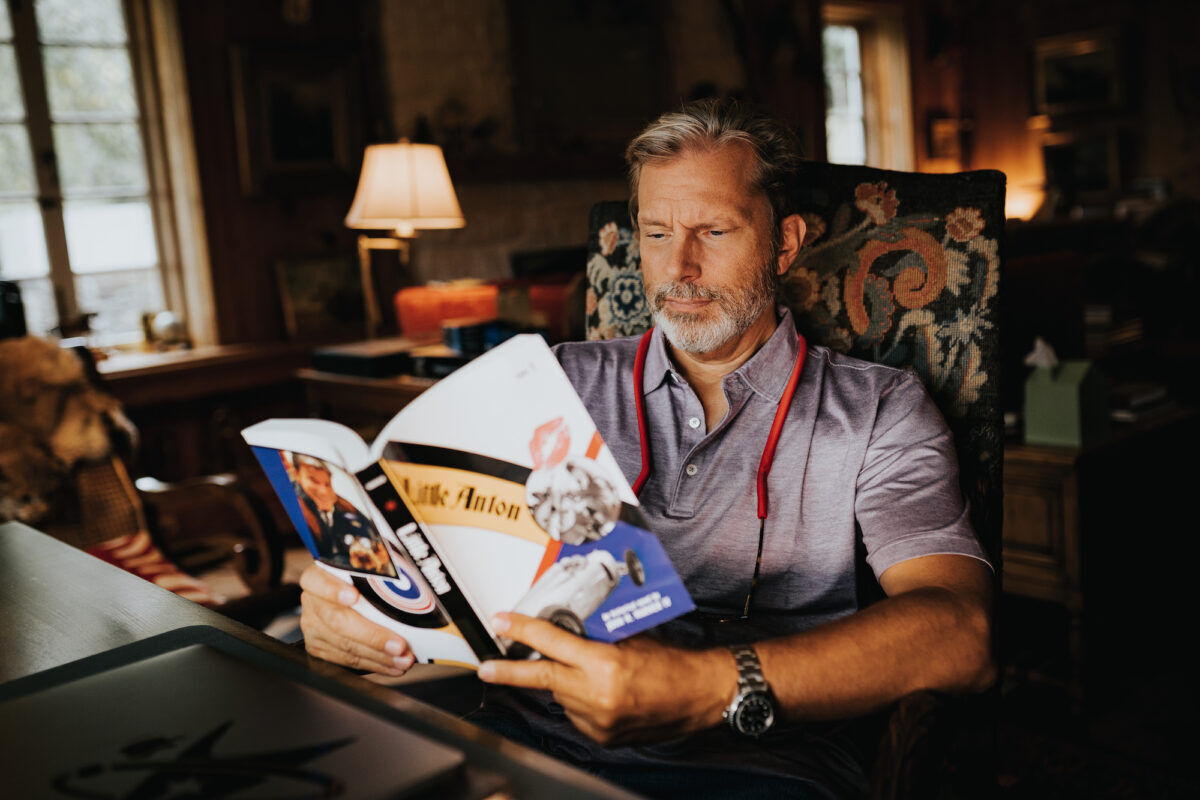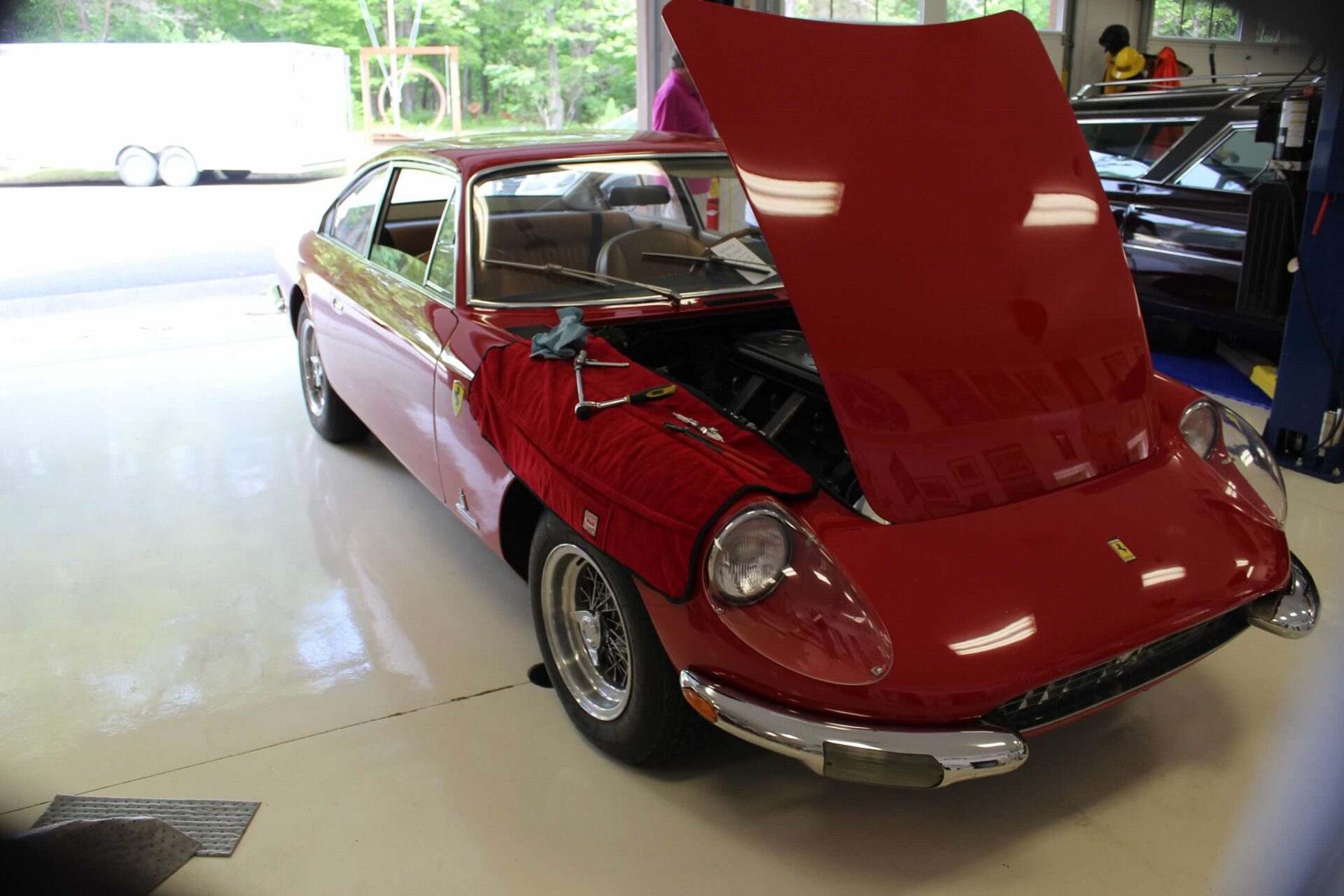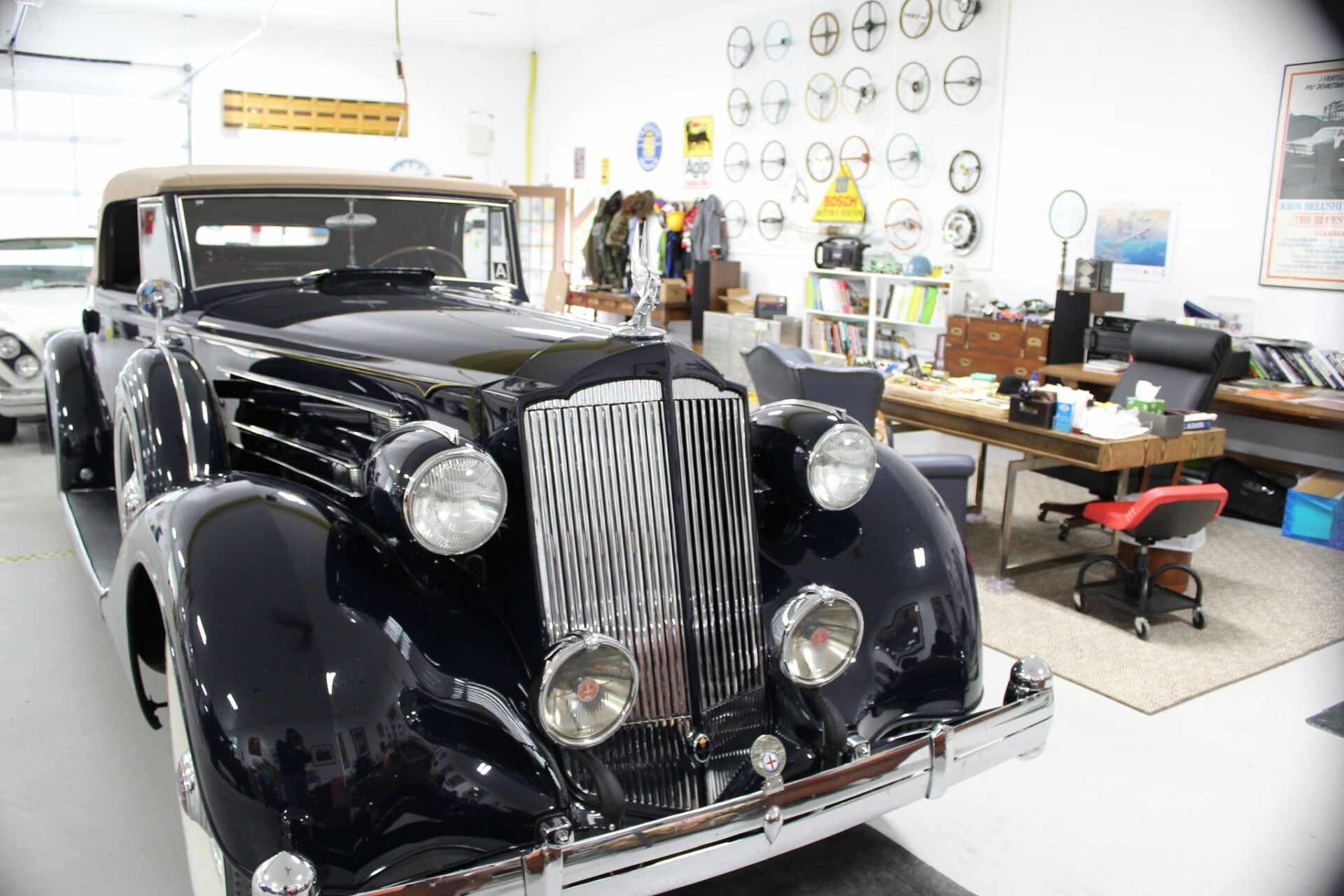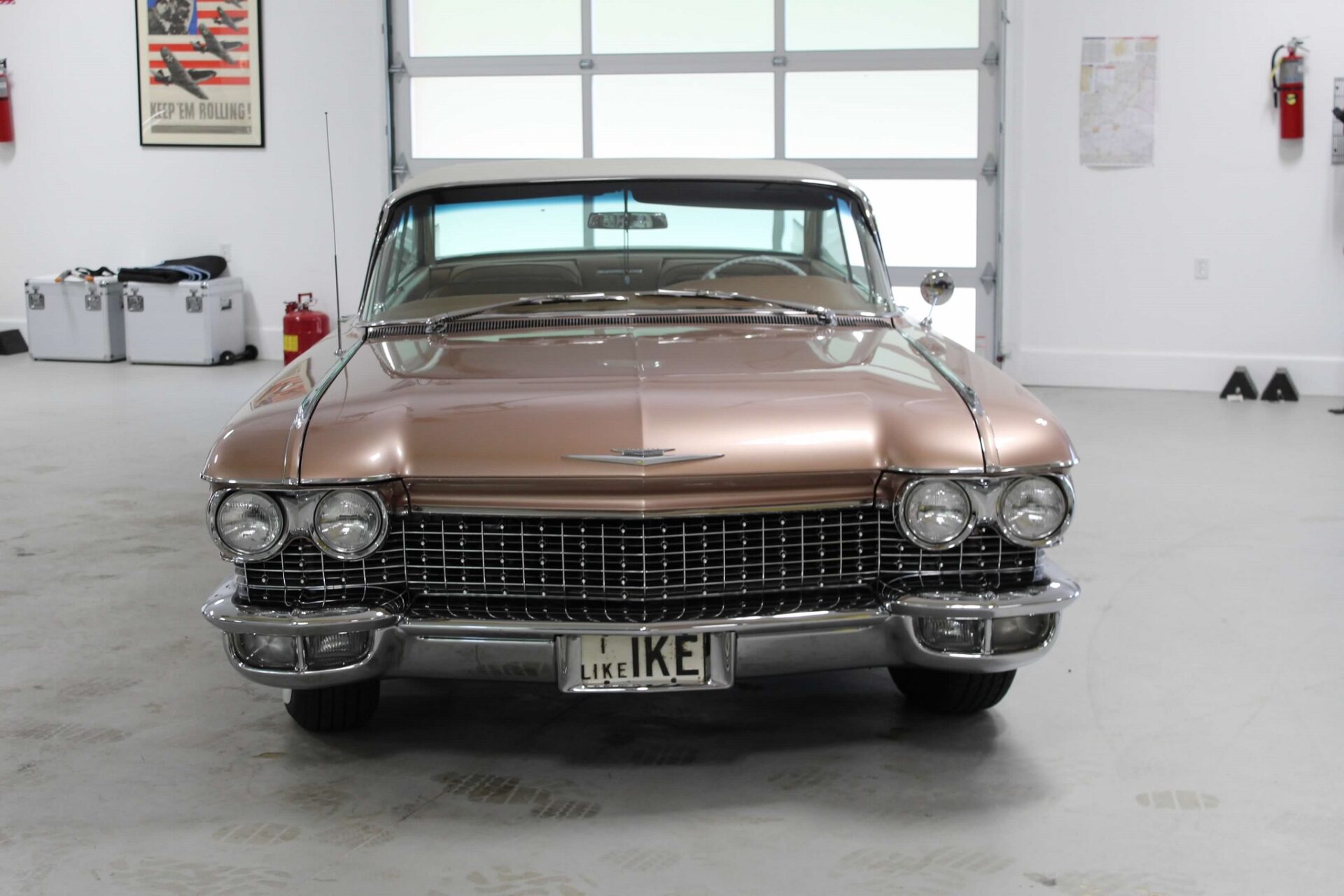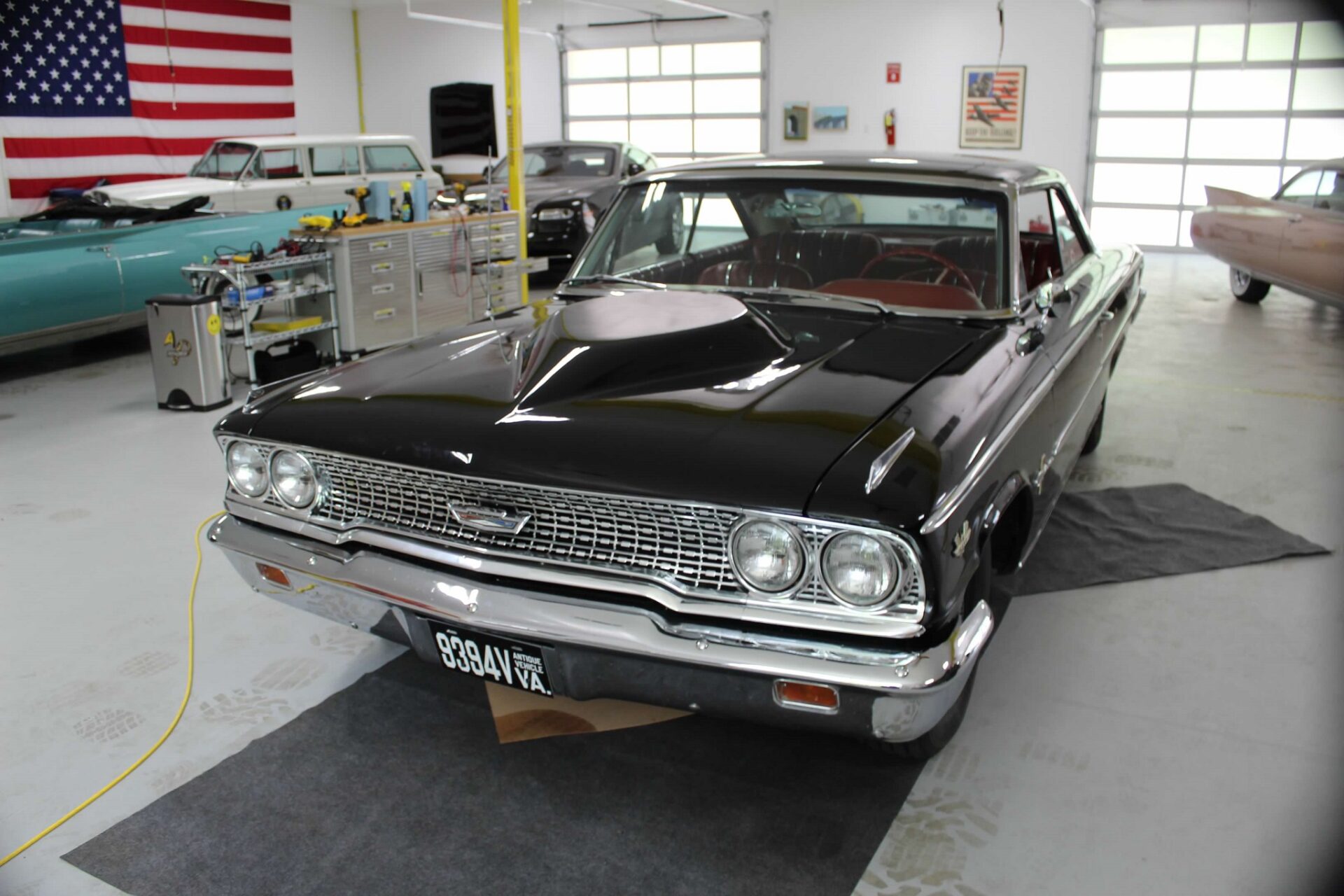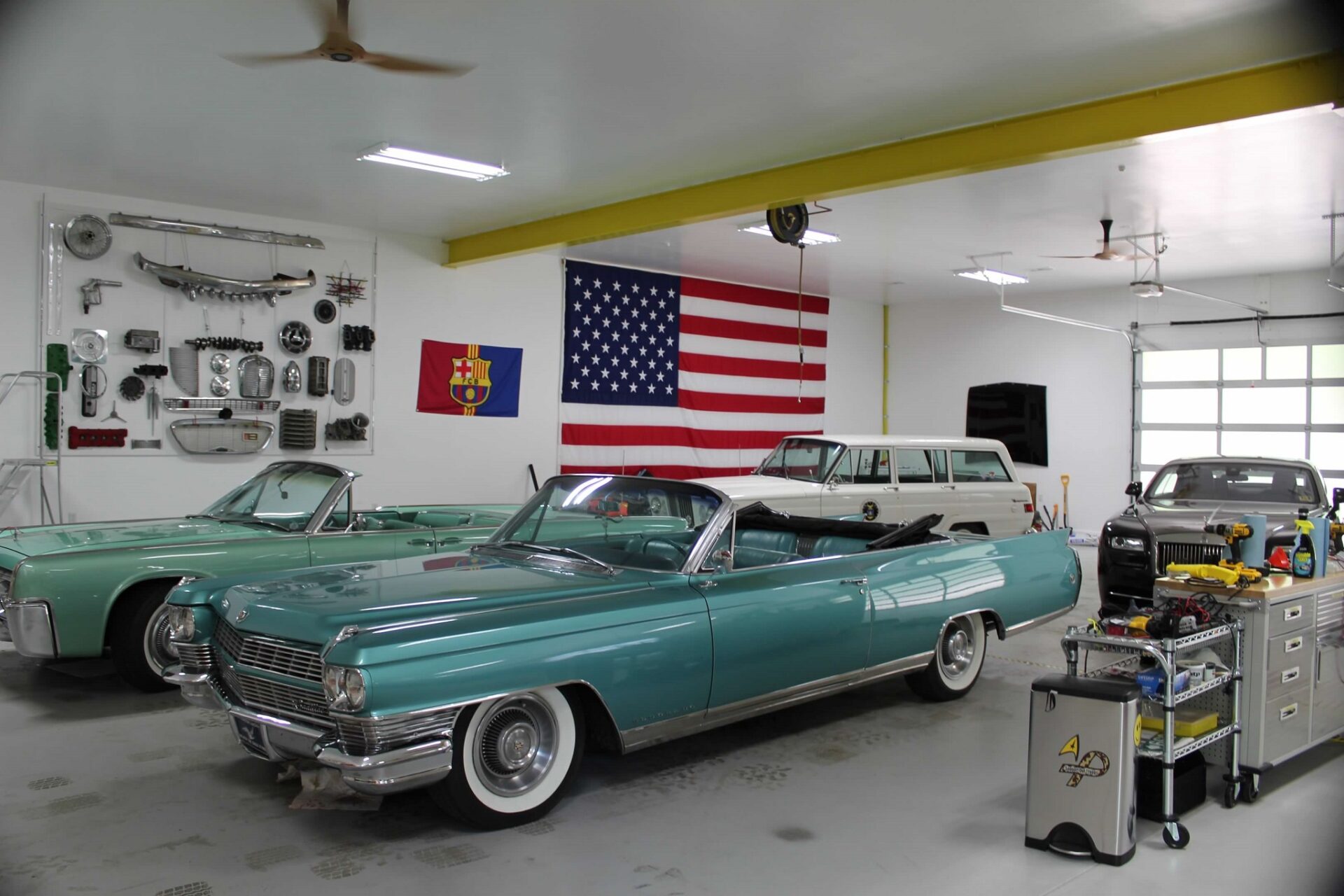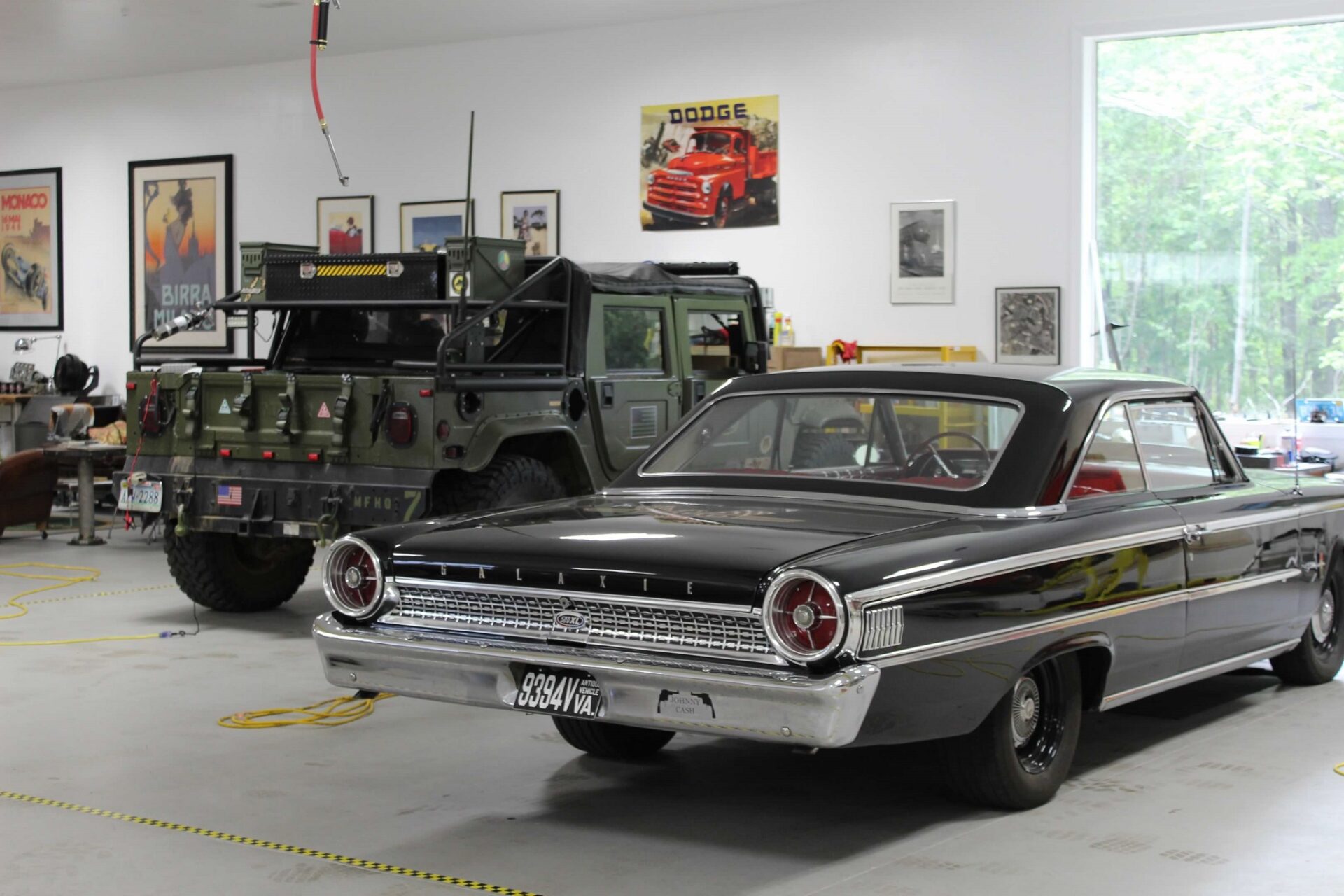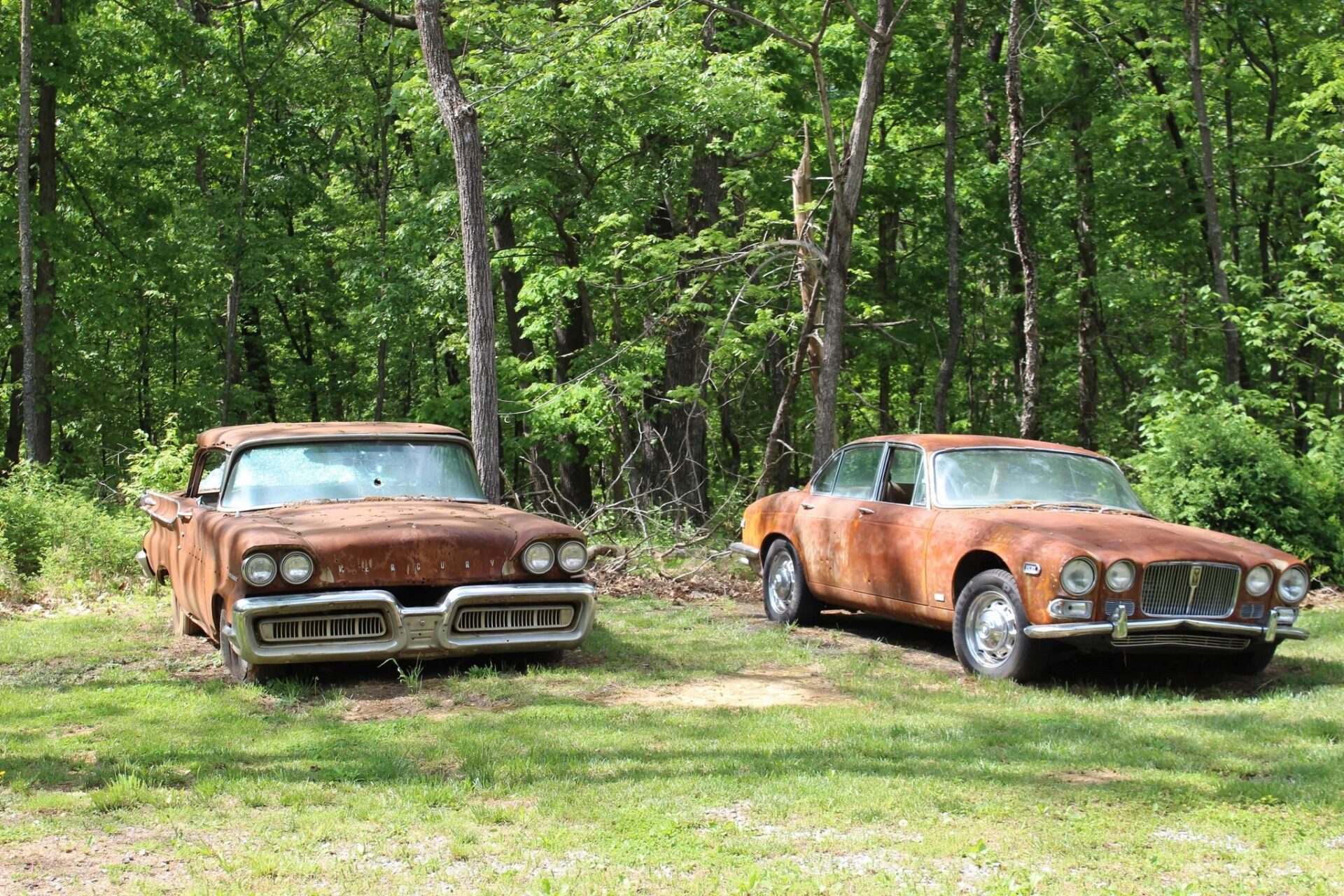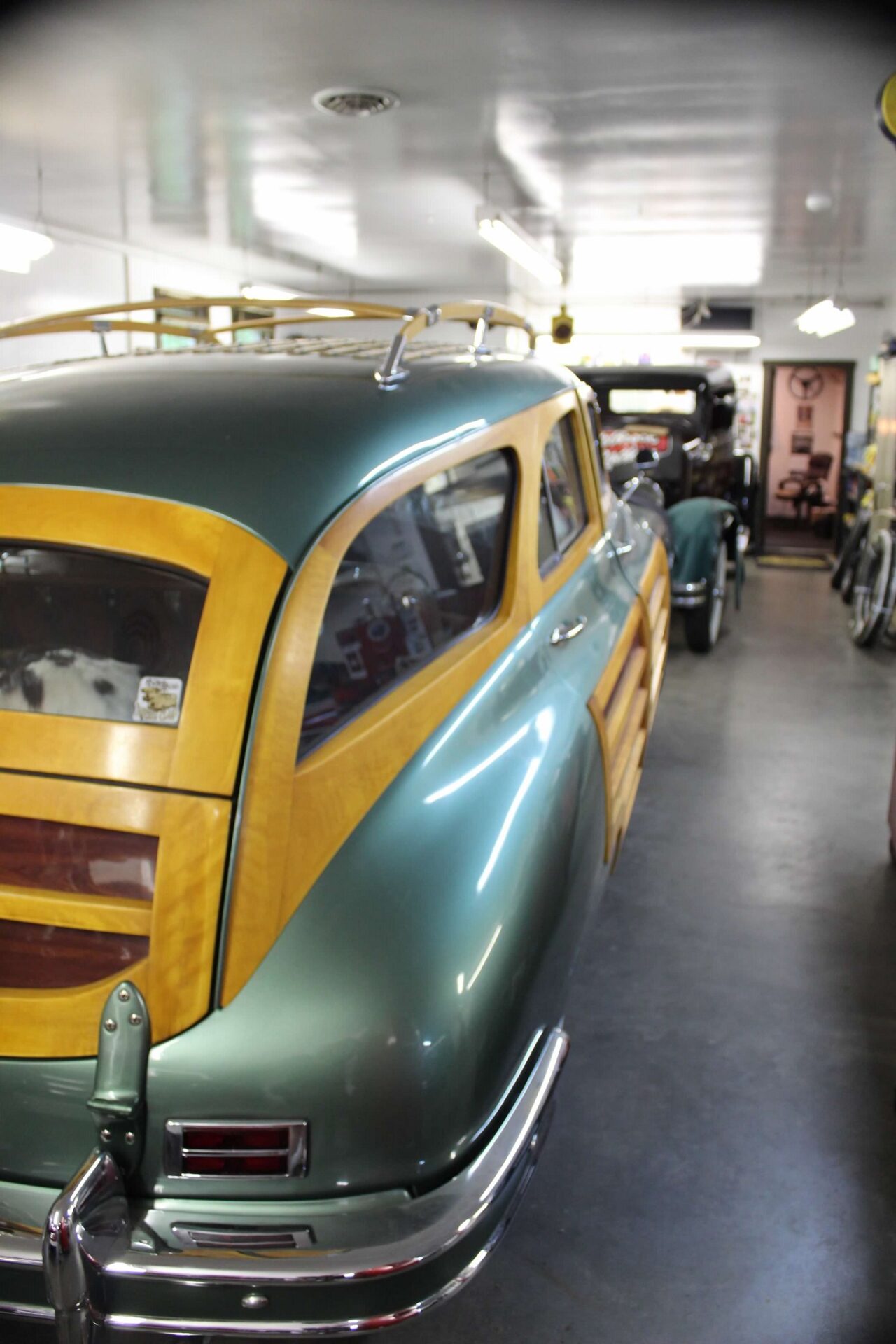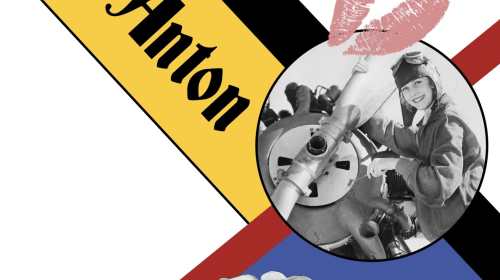Our guest is an author and historian with a passion for hidden history, revisionist historical narratives, vintage cars, and the unsung heroes of WWII. His father, a 5-term US Senator from Virginia, his mother the daughter of a renowned Pittsburg born philanthropist, his step-mother a famous celebrity. If you haven’t guessed it by now, we’re honored and excited to have John W. Warner IV on Break/Fix – a former IMSA pro-driver turned gentleman farmer, car collector and passionate petrol-head, to talk about his historical-fiction series “Little Anton”, part satire – part love story, and a dash of espionage — and we promised John… we wouldn’t talk about aliens. (maybe).
Spotlight
John W. Warner IV - Author & Historian for Little Anton

From John W. Warner IV — former pro racing driver and son of Senator John W. Warner III (Ret.; R-VA), former Secretary of the Navy and Chairman of the Armed Services Committee and Catherine Mellon, — comes a gripping WW II historical novel about espionage, covert tech, and a high-octane, madcap love affair during the height of Grand Prix racing and the rise of the Third Reich. In this debut novel, Warner masterfully interweaves a fictional adventure within factual reportage to disclose the hidden history of technological inventions that powered high-performance cars, planes and war machinery of the 1930s and 40s - and the prominent leaders who exploited them.
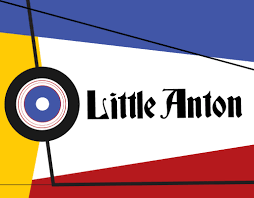
Contact: John W. Warner IV at jww427@gmail.com | N/A | Visit Online!![]()
![]()
![]()
![]()
![]()
![]()
Notes
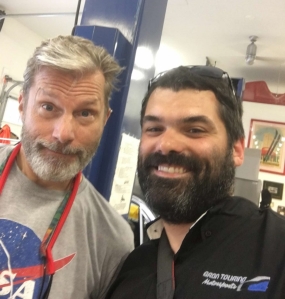
- The Dr./Prof. Ferdinand Porsche story, which includes folks like Ettore Bugatti, Hans Stuck, and more!
- Planes, Trains and Automobiles: the technical side of WW2
- “The Peoples Car” (aka Volkswagen)
- The Little Anton series and its newest book: Lion Tiger Bear
- The “mad cap cast of characters” in the series; and many scenes in the book series.
and much, much more!
Transcript
[00:00:00] Hello and welcome to the Gran Touring Motorsports podcast, break Fix, where we’re always fixing the break into something motorsports related
Tonight, our guest is an author and historian with a passion for hidden history, revisionist historical narratives, vintage cars, and the unsung heroes of World War ii. His father, a five term US Senator from Virginia, his mother, the daughter of a renowned Pittsburgh born philanthropist, his stepmother, a famous celebrity.
If you haven’t guessed it by now, we’re honored and excited to have John W. Warner IV on Break Fix, a former IMSA Pro driver turned gentleman, farmer, car collector, and passionate petrolhead to talk about his historical fiction series, little Anton, which is part satire, part love, story, and a dash of espionage.
And I promise John, we wouldn’t talk about aliens. Maybe so welcome to Break Fix, John. [00:01:00] Howdy. How are you doing? Let me put this in perspective for our folks that are listening in. You and I have had the pleasure of meeting up several times during the course of the last couple of years. Last names withstanding.
I didn’t really realize how tied into the automotive and Motorsports world you were until we both participated in the classic car tour back in the 20 18, 20 19 season, where I was introduced to John W. Warner Iiv kind of behind the scenes. I got to see some of your collection, your racing memorabilia, hear your war stories, pun intended.
Which leads to our first question, were you always into cars? Was that your thing? Has it always been a passion? How did you find yourself behind the wheel? Well, I have a dual passion, everything to do with space and Star Trek and UFOs and all that. But also I had a passion for cars at an early age. When I was in college, I scraped together all the money I had in the world and I borrowed five grand from my dad.
It was a lifetime Lincoln driver. And he says, what? What the hell kind of car are you [00:02:00] gonna get, son? And I said, oh, don’t worry, it’s gonna be a Ford. As long as it’s a Ford, I’m fine with it. Here’s five grand, pay me back later. And so I went down in Charlottesville when I went to UVA Brady, bushy Ford there, they had a uh, used car building and inside was a lime green, 1972 Pantera.
Well, that’s Ford adjacent. Yeah, I was like, tell me about it. Cause I was kind of gearhead and he’s like, well this car’s got no radio. It’s too loud. And the former owner was a GT 40 driver and he pulled the motor and blueprinted it and it’s got a solid lifter cam and you know, big Holly double pumper, higher compression and all that jazz.
And I said, I’ll take it. Where do I sign? And I took the salesman for a little drive. This is before I learned to race, cuz my father got me into racing actually. Really? I gave him a ride in the car one night at 140 miles an hour. Same thing with the salesman. My dad said, oh Jesus Christ, you’re gonna kill us all.
Go get some professional driving lessons. I’ll pay for them. I insist the [00:03:00] next week I was off to skip Barbara Racing School. This was the summer of 1983. I met Paul Newman and Tom Cruise was there in my class. He was late. I was friends with Newman. From then on, I actually dated his daughter later in life.
They were a, a wonderful, nice family. They were just the nicest people. And he and I raced together later on in, uh, grand Am IMSA and American Lamont series at, uh, Daytona and spr. You know, my father got me into it, you know, that’s not something I would’ve guessed. I don’t know why I didn’t put those two things together.
So, was your dad passionate about cars and racing? No. He’s a lifetime Lincoln man. Oh no. He was a 55 mile an hour guy. I usually had a driver, you know, in his Senate days, but he always instilled responsibility and safety with me all throughout my life. He said, listen, you know, you’re a good responsible kid, but you’re 21 and you need to learn to drive cuz this thing will kill you.
And he was right. How I didn’t kill myself. I, I don’t know, that was a genuine 160 mile an hour car with that engine in it. I did it late at night one time with a friend. He [00:04:00] knew that it, it would save my life and it probably did. That’s one of a few widow makers that you’ve owned. I’ll tell you that Pantera was a really nice handling bar engine with protruding into the cabin.
Talk about mid-engine. It was more mid-engine than either the Ferrari 3 0 8, the boxer at time. And I’ve owned two boxers and they handle like shit compared to a Pantera. I mean, they’re wonderful cars, beautiful sounding engines, but they don’t have any torque. The Pantera would eat it alive. The Pantera’s very neutral handler.
And so you could go into a turn, a really tight turn hot and lift off the gas and the nose would point in gently. Beautiful under steer, built into it. Just enough. When I came back from racing school, I, you know, I could drive. All of a sudden I noticed that the car was very neutral balance. So I, I think it was a very safe car.
Actually. Your dad put you in racing school, but what did your mom think about all this? Well, she was more of a car person than dad was. She taught me to drive one day. I was 12 years old out in the rural Virginia in 1974. You know, It was no big deal for a parent to have a kid drive them to the store. And today it’s a different [00:05:00] deal.
She said, you know, put the booster seat in and said, drive, there’s the clutch. That’s the break, that’s the gas, it’s four speeds. She had a bmw, it was a 3.0 Cs cool. And I said, okay. And then dad, I think two years later it was like, come on, I’m gonna teach you to drive my Bronco. He had a 75 Bronco. And I said, oh, mom already taught me to drive when I was 12.
He’s like, what? Both parents instilled that in me not to foreshadow. What we’re gonna talk about in a little bit here, but did your passion for Porsche start at an early age or did that come at a later time? That came in a later time. I had always noticed them and liked them. Boy, I’ll tell you, a friend told me to buy a used nine 11 turbo back then before I bought the Pantera, and I’m glad I didn’t, was a novice driver.
And the trailing throttle over steer on on those old ones is bad. But once you master it, it’s great. Back then I kind of knew that from reading Road and track and I was like, you know what, it was the Pantera with badass, you know? It had every bit of 370 or 80 horsepower, which was a lot back then. In 83.
It could take on anything in the world. And in [00:06:00] Lime Green, they saw you from a mile away. Oh yeah. And they heard you from a mile away too. They did. The state trooper one, one guy pulled me over in Charlottesville and he said, son, this car is too loud, too low, and too green. And he gave me a ticket for no front license plate.
I don’t know how. I never got a ticket for speeding in that thing. It’s a miracle. But I got a ticket for everything else. Another Porsche question, what was the first Porsche you ever purchased? I had a couple of girlfriends with Volkswagen Bugs. I, I was really impressed with those. I had a, a girlfriend with a nine 14 and I was amazed at how it handled in college and so I bought it from her, but immediately sold it two weeks later to a friend of mine.
But I was impressed with the handling. My first Porsche that I bought was the race car actually. I bought a nine 11 GT three R water cooled from the factory. You know, it was factory race, car racing for a German team. And they’re like, ah. Siman, they would call me Vener and so on. Speed vision at the time.
I’m W E R N E R. Vener. Hanner, yeah. Before the race. [00:07:00] And so my first car was the race car, but then when I got home, I bought a used nine 11 C4 s from a friend. And I loved that car. But the race car was awesome. We had problems with the early water, cool blocks, like in the day going 24 hours, we blew through a block and practiced.
But the factory FedEx has won overnight from Germany. A long block. That’s Porsche for you? I mean, I raced on a German privateer team, but they had factory support in the back door cuz they were German. Let’s expand upon that a little bit more. So you know, you went through racing school, Paul Newman, Tom Cruise, all these kinds of things and then you find yourself an imso, you know, what was alms then is still now INSA today, soon to be merged with the W E C to become whatever these new classes are that they keep talking about.
So late nineties, early two thousands and three of the major cars that stick out. One of them you mentioned the nine 11 GT three R, Corvette, C five R. And a Toyota. Of those three, which did you prefer? Well, definitely the Porsche. I’ll tell you, the Toyota was a spec series. It was a Sports Toyota Pro series.
They were very [00:08:00] good. Mid engine open, sort of a mini prototype. I have a guy around Riley and Scott, why don’t you move up into that? And I said, no, I’m gonna do a couple years in a nine 11 before I do a prototype. Now, I had just done a year, two seasons of Grand Dam and a Corvette CE five. Which I really liked.
Uh, the only problem with the Corvettes was the SL got greasy about 40 minutes into, they lasted an hour depending on track additions and heat. You’d be going through the corners, just sliding around. But the Porsche kept its weight on the rear wheels and it had a, a distinct advantage in the corners. And the Corvettes were allowed to have a little more power, so you could.
Pass on the straits, but I found I could dive into the corners and beat people that way in a Porsche. I was like, why would anyone race anything else? I mean, I really felt that way. I, I don’t plug for the Porsche factory or anything, but that car saved my life on many occasions and I just got a real appreciation for the engineering that went into it.
It was evolutionary. I had a brief couple races in a, in a rented aircooled, and then briefly I, I, I did a, the GT one with the twin Turbos Newman raced that, and the [00:09:00] 2001 Daytona did a race or two in that. It had definitely had turbo lag problems and other electronic problems. It wasn’t the car, a car was set up.
Great. We talked about it on an episode in season one about the gentleman drivers, and I’m wondering, were you officially on a team or were you considered a gentleman driver? And I don’t mean that in an offensive sort of way. More of a curiosity sort of thing. I’m not even sure what the definition of gentleman driver is other than just some rich ding dong, you know, going to rent a car.
I didn’t do it that way. My father told me some good advice. He says, He came to a race of mine when I was doing S E C A National in Austin Healy. I said, I’m moving up to this Toyota Pro thing. He’d always tell me, never do anything half-assed and don’t jump into something that you’re not prepared for.
And so I really was very conservative. I raced with some very rich guys who would buy a brand new car. But they didn’t have jack’s shit per experience, and they would obviously spin out and they couldn’t take the heat of professional racing. That happened on a number of occasions, but I had five years in the Toyota series, [00:10:00] two years in S E C A Pro and the Vets and then the Grand Dam and the Vets and other things.
I really worked my way up slowly cause I didn’t wanna be this rich Dante, not knowing what the hell they’re doing, but they’ve got the money to buy two cars or a stable of cars. I never did that. I rented cars until the Porsche and then I, I had to buy it. I enjoyed racing with drivers who came up through the ranks like I did and didn’t just buy their way in.
That’s a really dangerous thing to do. Absolutely. And people get killed all the time in their arrogance. They’re like, I built this company, I’m ceo. I’ve made $700 million and I’m gonna buy a brand new Ferrari race car. And, and they stuff it into a wall after going to race school of two weeks. Pro racing is, it weeds out the children from the adults.
Some of the women I raced against, one was a paraplegic. She was the best racing driver I ever saw. Car caught fire. She called herself outta the car by herself and we were all there clapping. Holy shit, shit. You know, that’s real balls. Was that woman? I always tell that to people. You know, I had a girlfriend who says, you know, you do all these macho things.
And I said, oh no, I race against [00:11:00] some very good women who take it very seriously. And you would’ve come up through the same era as like Lynn St. James and Willie t Ribs and all those folks that were in TransAm in the seventies, eighties, and, and nineties as well. Sort of, I mean, I, I 83, I was 21, so I started early, but I went through the Skippy series for four or five years.
I really didn’t think I was gonna go beyond that. I thought it was just gonna be a hobby and, and everything. And you know, my dad said, don’t do anything half ass. So I didn’t. But by the time I got into the Toyota stuff, I, I won a minor award for most improved driver. It was like 40 of us. And my crew chief said, it’s time to move on.
The problem with those cars, they were momentum cars and they didn’t have a lot of power. They would go. 145, but I, I wanted to be in a GT three or two or, yeah. What do you think are some of the, uh, other than the quadriplegic pulling herself out of the car at Sonoma, I think it was the racetrack, if I recall the story correctly, what other memorable moments from racing, like maybe some folks that you know you encountered that maybe kind of put you in awe, like [00:12:00] one of the characters in your book, Hanuk Sr.
Did you ever meet Hanuk, his son? I wish I had, I was gonna race in Europe for the, not the Super Cup. It was another series in 2002, but my back went out on me and I never got to Europe. I was gonna move there for a year, so I was gonna live in Munich or somewhere with this German team. But it all. Fell apart.
I met Newman early on, but my sister knew him. I dated his daughter briefly for a few years and he and I became good friends around Daytona. 24 hours in 2001 it rained all night. Ugh. That was awful. He was in the class above me. I was in the GT three. He was in a GT one Porsche and he would flip me the bird every time he passed me on the oval, you know, on the high, in the rain.
You know, I’m like behind Dale Earnhardt, his son, they were in the vets and I’m like, oh shit, what am I doing here? You know, going 180 and you’re following a little red light and all this spray, and you’re praying the guy ahead of you knows where to stop. Break for the turn one. I thought I was gonna die that night.
Unreal. I didn’t really meet any, I, I met, you know, RETTI and some of the big drivers through, [00:13:00] through Newman and I would hang out in his IndyCar pits with the family and that was a lot of fun. I thought Andretti was kind of arrogant, you know, it’s like, don’t meet your heroes. You know? I was lucky. I mean, Newman was this down to earth guy.
He was a really good driver. I wish I was as good as he was. Of all the racetracks that you’ve driven on, what’s your favorite? Or your least favorite of the tracks you wished you had driven. Is there still something on your bucket list? Well, I can’t drive anymore back’s too bad. I’d always want to go to Lamar.
Check that out. My least favorite, in the old days, Mosport in Canada had a hill that went down to a bridge. I was there one time when they were like, all right, the drivers, I mean, the guy just died yesterday in practice, and we’re all like, oh, shit, really? They come down this hill full speed, and then there’s no protection against the bridge.
Now they fixed that over the years, but man, back in the early nineties when I was there, Oh my God, that was awful. The rest of the track was great. Sears Point, you got me. How you drive that track fast. It’s beyond my, I don’t know, [00:14:00] weird set up turn. I never could get it right. I never got it right. My favorite was Seabring.
It was flat. You had the nostalgia of it. Turns were perfectly proportioned. It was pretty fast. There was room to pass, you know, on down the line. Flat out best. And I like Summit Point, West Virginia, which is my hometown track. It’s a really good track. It’s bumpy as hell, but if you can learn to drive there fast, you can learn to drive anywhere.
That’s very, very true. You’ve alluded a couple times, you know, back injury, back pain. Is that the reason you got out? What happened? What made you leave racing? Oh, pain. I was getting ready for the 2002 season. I did a few practice runs in the nine 11, went back to the hotel and I was like, oh my God, I chugged a half a bottle of Tylenol and nothing happened.
And I just said, I, there’s something wrong with me. And I went to the doctor and I’ll never forget it. He laughed at my mri. You’re done two races. Prior to that in practice, I was at Road Atlanta and one of the Audi prototypes bumped me going in the [00:15:00] downhill, full speed. And I spun around into the, the, the wall, I don’t know, 140.
I, I can’t remember what it was. Pushed the engine up against the firewall. Didn’t break through. Car saved my life and I blacked out for a few seconds, but it was just the aggregation of all my accidents. I was riding at Burley’s and I was in good shape. I would go to the gym and I just thought I was invincible.
I was 40 years old. I had just turned 40. And uh, the doctor was like, you got compound fractures. You’ve got fractures in your pelvis you didn’t know about. I was like, oh, really? And he’s got, you’ve got two smashed discs. You’re done. And then weirdly enough, couple months later, I, I figured I’d take out the 2002 season and get an operation and get back into shape.
I went head over heels and a mountain bike on the street about seven miles an hour. And I hit everything. I broke my fright femur. I had about 30 fractures in my pelvis. That’s when the compound fractures in the lower lumbar vertebrae started. I, I was just a mess. Wow. And you know, I’m still in pain to this day.
I had three operations. This is really the jumping off [00:16:00] point as to where you get to your writing career. Let me put a pin in that for just a moment and let’s come back and revisit this being in pain coming off the bike. Your, your last accident there. Some lighter hearted questions before we get into the meat of the conversation, which is your book series.
Little Anton. I’ve seen your collection of cars, so I know it’s quite eclectic, but what are your favorite kinds of cars and what would you consider the sexiest car of all time? You’d have to put it in a specific category, the sexiest car of all time. If I had to pick one a, a sports GT car, I would do the Maserati Ghibli.
The early seventies. I’m an artist. I can tell you there’s not one awkward line or anything on that car. I don’t, I’ve never owned one, but I, I’ve seen one in person. It’s so low and proportion so beautifully. And actually it’s a very good car too. I mean, Maserati could really build a car with, with that engine was raced.
It’s just perfect. My back wasn’t bad. I’d probably invest in one. It’s such a, an amazing car to look at. It’s breathtaking in person, truly is. Now [00:17:00] Ferrari, Daytona and GTO are are close. The other one sedan would be the 1961 Lincoln Continental Suicide Door. Now, that car I do own, I’ve owned it for almost 20 years.
You know, my wife and I just stare at that car. It is the most beautiful. Post-war four door American car ever made. In my opinion, the Ford Lincoln guys got it right, the proportions, I mean the Kennedy White House was filled with them. Cause Robert McNamara, we used to be c O of Ford and Jackie Kennedy driving.
I remember the Kennedy’s driving the cars when I was a little kid in the sixties. Cape Cod. My sisters were friends with them. I remember, you know, we get 10 kids on the back of the convertible, those two cars. But I have to say for America, the 63 stingray split window, I’d pick that over all other cars.
My god, that thing is just perfect. What do you consider like the ugliest car ever? I don’t, that’s one of the questions in our meetings that people pass around everywhere. There’s a million answers. You know, beauty is, is in the eye. The beholder. One person’s idea of [00:18:00] something good looking is another person’s cool and weird.
There’s no answer to that. That is the most neutral answer we’ve ever received to that question. And I’m not, I’m not saying that’s a bad thing. There’s some ugly cars out there to someone. It’s always cool. That’s very true. So are there still some cars on your bucket list that you’d like to own outside of, you know, a couple of the ones that you’ve already mentioned?
49. Cadillac Fastback C and definitely on my lists, uh, as my next car. I don’t want to drive a super-duper expensive car. It, it makes me a little nervous cause I like to drive my cars. I barely even clean them. I’m in the poets group, you know that category. We just drive our cars. I don’t go to shows and do the trophy thing.
I could care less. I keep them relatively dust free, but I don’t wash ’em a lot. Pre-war cars, I just can’t do anymore. I need power steering now. That bike accident ruptured my rotator cuff, and it’s just gotten worse with age. I’m almost 60 now. Is there anything modern that would be on your list, something that’s caught your eye in the last maybe 20 or 30 years?
Oh yeah. I go to the [00:19:00] local. Sterling, Virginia Ferrari dealership. I know the guy’s Italian, he likes to drive fast, so I drive all the new modern Ferraris and back there they got a road circuit. We really hammer the hell out of them. So I’ve test driven all of them. The new, uh, aroma looks nice, but all these new sports cars, they look like angry insects, you know, from a sci-fi movie.
I just can’t get over the styling. Maybe that’s just my age. I, I just don’t like it. Everything’s so techy in the Ferrari now I have a 19 68, 365, and that’s just such a beautiful, elegant car with no fuss and electronics at all. I guess I’m kind of a Luddite that way. But as far as new cars, that’s a good question.
What would I like to drive? I think the Bugattis are silly, even though Porsche has a hand in that, in engineering Now, professor Porsche would admire the design engineering, but he would not have liked the weight. He was into lightweight and so was Jerry Porsche, his son. And so to see this behemoth, you know, 16 cylinders and 50 radiators and 20 intercos and 50 turbos, even the professor, I think would say, Whoa.[00:20:00]
Nine, nine. It, it’s just too much. I think it’s, it’s just a toy for weirdos. I blow down in my old age, I, I don’t get the rush of adrenaline. It’s not pleasurable anymore. I collect old Cadillacs and Packard. My wife and I just love cruising. Uh, we still have 3 56 Ferdinand that we drive. I go around corners fast than that, but you know, that’s only got 105 horse.
That’s a lot for a 3 56. Yeah, it’s got the 1800 cc kid on it. Oh, there you go. Maybe 110 on a cool day. Boy, it’s, it’s so much fun to drive and it’s actually rides pretty smooth. I can get away with it. I couldn’t ride it for four hours, but I can do an hour and a half without hurting. Too bad. It’s funny, we’re talking about a 3 56 here for just a minute because you know, I’m a petrol head of a different generation.
I grew up in the era of the nine 30 and the Kunta and the Testa Rosa and the F 40 and things like that. So those cars get my attention. But I’ve always had an appreciation for Aircooled Porsches because that’s what I grew up with as well. There’s a common misconception when it comes to who designed what, [00:21:00] oddly enough.
I recently had a mutual friend of our south finale on an episode of Break Fixx as well, to talk about Porsche diesel tractors, and he dove into the Porsche history as well, and you know, who’s designing what and when the tractors came out, that was still during the last couple years of Professor Porsche’s life and I’m like, Did he actually design the tractors, which kind of begged the question as I looked over things.
He designed the beetle ferry, designed the 3 56 and Bootsy designed the nine 11. So it’s kind of interesting to see the generations of the Porsche family and how they’ve evolved everything. People don’t crack the big books. I talked to the guy at the Gamo Museum for hours with a translator. No, no, no, no.
Professor Porsche designed the first 3 56 ferry. Took it from there. But no, he designed it. Porsche people forget his World War I and earlier inventions before the tractor, he invented a, a front motor tiller tractor. Yes. And the teens, 1914 or something for the German people. He was always about efficient designs of things.
You know, he was an airplane [00:22:00] engine designer designed engines for a flying boat. It’s all my book. People always think, you know, the Beatle and everything. He designed a lot of different things. He was well known genius in the twenties and teens and twenties, Germany and Austria. Uh, it wasn’t this fame that he got with Hitler.
Hitler was a nobody when he met. Porsche in 27. Porsche was a famous man. Him and Bugatti were walking, that’s a true story. Lu and his entourage show up stinking like motor oil and armpits, and they were like, no, these guys a whack job. The old man designed the tractor as well. Ferry designed the five 50, I think, you know, obviously, and all, you know, the later 3 56 race cars and all that.
The four cylinder race car series, and then everything after that, Bootsy, you know, No, the old man did the 3 56. His prototype for it still exists somewhere and it’s pre-war. It didn’t have an engine, I don’t think. Uh, it might be in the Porsche Museum. I can’t remember. The 3 56 was designed loosely based on a Berlin to Rome aerodynamic car.
But that was basically the genesis for the 3 56, the chassis and [00:23:00] everything and sort of the aerodynamics. People get a lot of that stuff wrong. It’s no wonder cuz Rodent Track and all these car magazines, those guys, they don’t do much research. They do the minimum. They got a deadline. When I started this book, I’m a very detail oriented person as Porsche was, and the Germans are known for that.
And Austrians, I hate it when Hollywood movies like Indiana Jones or whatever have you, even war movies and books and things, they get the details wrong. I went to extra lengths to get the details right. I don’t introduce a gun or a plane or a car. Until the moment in history that it was introduced. I don’t play fast and lose with facts.
I hate that in movies and books and, and things. Oh, they’ll never notice and most people don’t. I understand that. And so I, in my books, I get a lot of compliments over the email. But people were like, you really sweated the details. You’ve got things right. I went on the access forum and the one guy that said, oh yeah, you get things really right in your book.
You don’t screw around. So I’m very proud of that. I do have revisionist history, but [00:24:00] there’s a lot of true stories in there mixed in. I do write fantasy, but it’s all based in probable reality and Pinel does something. I put the serial number, you know, it. It’s that kind of detail. I don’t want World War ii, especially the, you know, the, the German buffs.
Coming after me and going, this guy’s a hack. But you know, I, I write every book I can on the old man, and, uh, no, he doesn’t get enough credit. Everyone thinks Ferry Porsche did everything. And it’s like, nope, he didn’t. He helped his father. He was there every step of the way, and he was a very good engineer and designer in his own right.
A lot of it is, you know, the father and son, very much so, and, and especially in those last years of his life, because a lot of people also don’t realize that he was put in jail or in prison for being associated with, you know, potentially with war crimes and whatnot. Obviously with the Third Reich and all that, because Hitler did have him under contract to build the people’s car and all that kind of thing.
So, another reason the French put fer damn p prison for two years, not just because of his war crimes. He was just an engineer. You know, I’m not gonna debate that, that they pressured all the industrial [00:25:00] joined the SS before the war. He had been working with Renault and had licensed his torsion bar suspension.
I can’t remember if there was some foul deal going on with Poeo. And they got pissed at him and then the war started. And so that was another reason why they kept him in jail was that bad deal with the two French car companies. So I just wanna throw that out there that you, in my new book, Porsche, you know, he admits that they’ve got 20,000 Russians, Jews, and other people working at the Wolfsburg fact.
And my character B shakes him and said, don’t you dare go up against the Ss, they’ll kill you. They don’t care who you are. I think that you’re right, it’s, it’s pulling a thread like Ferry kind of continued, you know, the 3 56 ABS and Cs and all those that are more popular than, than the earlier UND cars.
You know, I associate with Ferry specifically because he was left with the companies like what are we gonna do with this now? And they had to keep things going, but Brett on the table, et cetera. And obviously they had a reputation to maintain having that legacy that his father had already built. Kind of interesting how all that plays out.
And much like the intro, it’s those [00:26:00] unsung stories, it’s kind of clearing up some of the more commercialized and watered down versions of Porsche story. Even Enzo story, Lamborghini going back into all these legacy car designers and families that are, are now known worldwide. And I have a very pointed Porsche question to ask you.
This question came up internally a long time ago and it raged a really fierce debate about ethnicity versus citizenship. And actually Porsche Senior was the crux of the argument. Oddly enough. And it was whether he was Austrian or Czech, and where did he align himself and how did he identify as a person?
And so I wanna ask you this two ways. One, because you’ve found a way to bring his story to life and fill in a lot of gaps, especially through your research. And two, because you are a known Porsche historian, so what is the truth there? Was he Czech or was he Austrian? Well, both. He was born in the Austro-Hungarian empire.
In 1886, he was an Austro-Hungarian. You know that region is [00:27:00] Bohemia, so you could say he’s a Bohemian, which he was today. It’s like Silesia and part of the Sudan land. So he was all that. But he did identify with Austria. He never really identified with Germany, though. He was always Austrian in his heart.
My aunt was Austria and so she was able to give me some intel on that. Austrian are very proud of their heritage. They call it Germans. Pka is the German pronunciation, and I say that in a book. He and Oscar make fun. I like Germans. It’s like someone from New York talking about California. It’s like, well, we’re Americans but not really.
Yeah, I don’t know what language they’re speaking. And so there are subtle differences in the German from region to region, Swabian, German versus Prussian and and other things. So people identified with region, but he identified himself as Bohemian in all three. Part of the argument was it didn’t matter what the paperwork.
Said it didn’t matter that the lines had been redistricted and the area that he lived in is now what we know as Czechoslovakia. It wasn’t back then it was Exactly, exactly. No, but as a person you identify a certain way [00:28:00] and we could extrapolate that into a lot of different things. But in this sense, patriotically, you know, where his ethnicity, so I wanted to confirm, at least from your knowledge that yes, Porsche Sr.
If you asked him, he would’ve said, I’m Austrian. Yes. And he was proud of being from Bohemia. They’ve changed the name of this town from Maers Dorf to something else. But he was Austrian, Hitler had an affinity for him. He was a fellow Austrian. People always think Hitler’s Germany, he’s not. He’s Austrian.
That’s very true. And for us here in America, what’s the difference? But over there there’s a big difference. Like I said, when I did this Porsche tour and history mission that I did in Germany, I went to Germany twice to research the book. He was Austrian and my aunt was Austrian. They were like, oh, don’t you ever call us Germans.
They’re friendly and they’ve always had cross pollinization. It’s a myth that Austrians welcomed Hitler with open arms in 1938. Most of them were not happy with the an sch sleuth and Porsche and his family. I wrote it that they’re not happy either. My editor liked that quote. I have a very short chapter, him and Fairy listening to the radio, and my editor liked that.
Above all else in the [00:29:00] book, Hitler favored Porsche. Obviously he contracted Porsche, well known at the time. As you said, Hitler was a nobody when Porsche was already on the scene. It made me wonder though, Outside of fame and notoriety and the celebrity that Porsche had, Hitler was very much a Mercedes man, let’s put it that way.
So why didn’t he go to Mercedes and have them build the people’s car? A group that was already established, Porsche didn’t have a factory. Porsche didn’t have the assembly line, and all these people behind him to build the Volkswagen originally. So, That’s a part of history. I’ve never understood why Porsche above Otto Union or Hoch, D K W or NSW or Wander or any of these folks that were still around, but Mercedes above all, because he was such a fanatic about benzos, it’s a complex story and most people don’t know it because it is so complex.
I write it as clear as I can in the book. He opened his Porsche design firm in 1930. In the middle of the [00:30:00] Depression, the lightweight, inexpensive people’s car was not his idea or Hitler’s. It had been floating around Germany for a while. French had an idea to do it too. The problem was steel costs money and engineering costs money and gotta sell millions of these.
Couldn’t figure out how to do it. Cars were a luxury item, even for middle class people. They were a luxury item. And so Joseph Ganz, I think was the originator of, of his lightweight car, which, and Porsche had met with him. He was saying, oh, he stole his idea. Well, everyone was stealing each other’s ideas.
He admired guns. And I wrote that in the book. Saw Han’s car. It was very promising, but I could do better because his engine’s water cooled and all too many things to break down. Hitler had the idea. Mercedes had toyed around with it. They couldn’t figure out how to make it work economically. A lot of the horse is luxury.
Auto Union wasn’t interested. It was just a third rail thing. It was like, oh, we can’t do it. And it took Hitler and, and the Reich Bank and everyone to force it to be done. The car manufacturers didn’t [00:31:00] wanna do it because Mercedes is the luxury brand. It wasn’t like today where they’ve got a million cars for sale.
They had like five and they didn’t wanna build some dinky toy. Oh no. And Porsche had the dream to do it and Hitler had the dream to do it. I think Alfred Rosenberger, Han Schook had something to do with it. It’s a little unclear, but they ended up in Hitler’s office and they were like, we can make this work, but man, we’re gonna need money to do it.
And he’s like, don’t worry about that. I need to auto mobilize the populace. It’s a verb. People think I made that up. I didn’t. Hitler was very enamored with Mercedes. They picked him up at Landsburg Prison in 1923 with two supercharged S glass. They knew the value of political people on the road. Mercedes was trying to market itself.
Hitler was a bit of a gearhead. In his letter, which I published in the book, I published it verbatim and he says, I need require this and such gear ratios, and for this amount of R P M and which is more efficient. He had some knowledge of that. He wasn’t stupid, he was just crazy. He was a madman, but he wasn’t stupid by any means until the drugs and [00:32:00] everything later on in the war got to his head.
He’s a megalomaniac and and all that. But in the early days he definitely a psychopath, but that really didn’t mature. But when Porsche met him, the stories I was able to piece together was Porsche and Bugatti were not impressed with this politician, but Porsche was impressed with the letter that he wrote to Jacob Burley and said, God, this guy’s not half idiot.
After all, he likes cars and everything like this. And it really is true that Hitler knew who Porsche was. The troops in the trenches in World War I, the German troops. They know who was designing the fas and the engines and all that. It was, you know, the Red Baron and everybody, but it was Porsche. They knew he was a famous man.
And of course he did artillery, trains and mortar stuff. And he developed a lot of things. That history is forgotten. That’s why I, I made this book an epic throughout 45 years or more because I wanted to showcase his early life. No one talks about that and I didn’t know a lot about it until I started to research it.
It was astounding. He was recognized as a genius [00:33:00] in World War I. So as we dive into your book a little bit, you’re reminded me of that scene with Bugatti at the beginning stages of the book, where it’s told almost from Professor Porsche’s perspective, where he’s there working with the Mercedes race team, whatnot, and then there’s Bugattis chasing them down in another one of the, in his own vehicle, and he refers them as this arrogant Frenchman.
And that’s another thing that’s always funny is. Bugatti is associated somehow with Italian cars, even though they’re French. He’s French, it’s, it’s an Italian sounding name. I found that whole scene to be extremely comical, and I think it’s a great jumping off point for going back to what we put a pin in, which was how did you go from pro racing driver to automotive historian slash author?
Well, I’ve always been interested in history. My degree at University of Virginia was in Russian history and Russian studies, cold War and all the whole history. So I had a history back and a good friend of mine when I was laid up in 2006, you know, I was in terrible pain. He said, look, buy a laptop and teach yourself to write you.
You wrote really good funny stuff in high school. You need to do [00:34:00] it. And I was like, all right. I didn’t really want to do it. That’s how I got into it. I had a history background. I traveled all over the world with my dad carrying a suitcase. I went to Russia with him to meet Gorbachev with Bob Dole and a bunch of senators.
I was the only one who knew anything about Russia history or culture. And these guys were like, oh, we’re not going to Bolshoi. We’re gonna go to bed early. And I said, every one of you is gonna go to the oid. That’s a rude thing to do. The Russian people take their culture seriously, their literature and all this, and, uh, I always read a lot of books on World War ii.
I, I can label myself now as a World War II historian. I have enough knowledge, and of course I’m a portrait historian. Honestly, when I went to the museum, they were very nice, but they didn’t know Jack shit and they would not talk about World War ii and they didn’t know anything. I had to go to the moon.
I had an Austrian guy on my Porsche tour and he said, I know some people that know some people. And I talked to people in their nineties who had been through the war. This is 10 years ago. So I had firsthand accounts. I met an old woman who had met the professor when she was a little girl. One’s degree of separation, you know, the museum and all [00:35:00] this stuff.
They want that World War II history to go away in Germany. They’ve got this thing. Well, if they outlaw the swastika and they outlaw fascism, it’ll go away. Uhuh it won’t. And they’re doing the, everyone a disservice by trying to ignore it. In some ways, the Porsche Museum needs to get over it. I mean, they should have a model of the Porsche Tiger Tank.
And that’s in my new book, you know? Right. That’s another thing that I was surprised it was somewhat referenced, but not directly in the early chapters. Cause you do cover a lot of the World War I efforts and, and some of those scenes, I love the way they were graphically represented. He’s out there on the mountain, it’s cold breath of the, the soldiers, all this stuff and the anxiety and it painted this awesome picture.
And I like the fact that the book isn’t too technical and having a background, even as a petrolhead, it resonates anybody that has. Any mechanical background, you get it. It’s not so over the top that my wife couldn’t read it. Not that I wanna insult her intelligence cuz she’s a very bright young lady.
It’s very different than what I expected as I was diving into the book. So it goes on. It’s a great doorstop. [00:36:00] No, I, I mean, I don’t wanna be overly complimentary, but what I, what I wanna say is it, it’s interesting how you were able to fill in the gaps and get all this research material on something, I don’t wanna say as obscure as Dr.
Porsche’s life, but something that isn’t as annotated as, let’s say Henry Ford’s life is right where you can dive in into the, the history of Ford and, and figure out a lot of things and fill in the gaps very easily. Easily. Well, cause Ford was a Nazi lover too. I mean, he. Porsche hated the Nazis in the Ss, but it’s funny, Henry Ford was good friends with Hitler as well.
Well, you were able to thread it all together and piece it all together based on interviews, scraps of information, stuff that people probably wrote down for you in a napkin. But the thing about the book that really got my attention is it’s very dialogue for, yeah, I’ve read plenty of historical fiction, you know, alternate history books and things like that.
They’re very dry, they’re very whatever. And, and I’m not saying that’s what was my prejudice going into this book, but what I came to realize was there’s these characters, there’s these other stories, there’s these, [00:37:00] these underlying arcs and how do you just conjure up this world around Dr. Porsche? It wasn’t easy, and I’m not patting myself on the back.
I knew the story somewhat of the Silver arrows and the um, auto Union Silver Fish, which most people don’t get. Ever. They called him the Silverfish, and actually Hitler picked the color as their national racing color polished in an aluminum car in the twenties once. I think Auer did it to save weight, but that was a myth.
The, the silver paint was made with fish scales. I put that in the book Porsche’s, you know, in World War I, he really was out there in the mud and he had that electric land train. He was very proud of that, and it did work. It hauled, you know, mortars and stuff up the Austrian owls to fight the Italians.
And uh, he really was on the front lines. The books just say he was there and nothing else. And so I had to fill in, you know, he was from a family of pacifists. He hated war, but he was also very patriotic about Austria and then later Germany. But you know, his boys were at the front dying. And to ask an engineer, we [00:38:00] need this airplane engine or design this or this electric train thing, he’s gonna do it because, you know, those are his young countrymen dying.
And you know, his story with his brother is true. His older brother. Uh, that’s the name of the book. There’s not much. I tried to find some of the family members to tell me exactly what happened, but no one knew. But I’m not gonna spoil that through the readers. The book is a tough read for other than for Gearheads or World War II people.
It is a tougher read. But I wrote it kind of with that. I was like, you know, regular folks aren’t gonna read this. And then it, the story became more metaphysical and it got bigger. It’s really three novels in a, in a long story format. Porsche, you know, it was hard because the books are just technical and I had to piece together scraps.
He’d like stale bread and the cookies in his pocket. That’s true. He and his brother Oscar were close. You know, they had long talks. They would go hunting for stag and, and mushrooms and his wife would make mushroom soup. And you know, these little things that gave him humanity. Whereas all the books are about racing and technical and the Volkswagen Beetle and Hitler and the Tiger Tank, [00:39:00] and little about the man, what he was really like.
And so I had to piece that together from a million different, that’s why the book took me 10 years to write. But it takes on this life of almost a biography. It is his biography. I wanted to do that in a novel format. My editor had a cow with it, but we made it work. It’s still too long for one story. I should have split it into two or three different books with beginnings and endings, but it is what it is.
Uh, it’s just three books. One of my things that I had to come to terms with as I’ve been reading it, fully admitting here for the audience that you know, I haven’t finished it yet cuz it is quite long. I’m on the old version of Little Anton, which is in two volumes. The first one is massive and the second one is like a writer.
It’s like an appendix. It’s first volume. Brick The stick. Yeah, exactly. The brick breaking the stick. Exactly. My wife’s name for it. Yeah. As far as I know, I could be wrong. The only single novel that’s sold in a three part set, I don’t know of any others. My publicist and my editor, we are all like, No one’s ever done this before and I was like, well, I’ll do it.
[00:40:00] Yeah, there you go. But that leads to my question and, and kind of my thought is what I tried to grasp when I was reading it, and for somebody that may be reading this book for the first time, which you realize is you dive right into the Porsche family story in the early, early days. Dr. Porsche’s a kid, and it kind of builds from there quite quickly into him being a young man and getting into engineering.
I’ve seen some other things explained about his early days and how he got into electronics and he was auditing classes in Austria and I, I’ve seen other versions of, of that story too, but I like the way you painted that picture and how you got us to his as an adult. But what ends up happening though, as you’re reading it, suddenly you’re introduced to these other characters, to use your words, a mad ca cast of characters in this book.
There is too many probably, but, and I love the personalities that you brought forth of, let’s say the Mercedes engineers, you know, and folks like you mentioned, like Newbauer or even Han’s, father Hansuk Sr. Right? Things like that where you personify them, they become real suddenly because they are too far in the past.
For any of us reading it now to have [00:41:00] been maybe intimate with their story or have even met them. But what ends up happening is you’ve flipped the script suddenly and you’re like, well, we’re talking about B and we’re on Safari in Africa, and we’re setting the story. And I’m like, wait, this is like a whole nother book.
Which kind of posed the question like, why didn’t we just stick with Porsche in one book and then do some sort of crossover and do B in her book? But I, as I’m reading it more, at first I was like, oh, maybe this is gonna be to quote a movie title. You know, Melvin goes to dinner, which is like a come to Jesus type of thing.
No, it’s not that this has to play out this way in order for us to get to where this all comes to a head and all these characters are now interacting with each other very, very closely. And so that makes it really exciting. I did a very complex thing for my first book, but hey, that’s me. You know, the Porsche way I designed it like, like a race, car B Beatrice, Ferd name Porsche, and lut.
Of the three main characters and their lives intertwine and they become tightly intertwined In the third part in book two [00:42:00] that you have, but the third part, the third book, and around this project that’s classified in Germany. Then it all comes together and then the reader’s like, oh shit. No wonder he went off on all these tangents.
They’re all coming together here. Exactly. Boom. They’re all in the same building together with this project. And it’s like, oh, that’s why he named the book Little Anton. I take a very circuitous way to do it, but I did it. The original version was 1300 pages. Whoa. Yeah. It was difficult to do and it took me a lot of revisions.
I mean, my editor and I went back and forth for a year doing this. No doubt. He would send me tranches of book and he’s like, I don’t know how you gonna do this, but you need to do this. And I said, you’re right. I gotta cut this out and redo it. It took a lot. It’s way too ambitious, but I did it. But it all comes together in the end.
I assure the reader that, and I think I mentioned that somewhere forward. Yes, you do it, it requires a, an explanation. My new book is only 400 pages. You’ll read it in a day and a [00:43:00] half goes so fast. This was a little bit more sophomoric and, and retrospective and places, and it is very technical in places.
It’s not for you and me or your fans, but for the average reader like my wife, I mean, they don’t know what 4.5 liter engine means. The average person can glaze over that. Who cares about a 12 cylinder engine versus a v8? Who cares? As long as you understand what’s going on and I try to explain things in the simplest way I could, but just was a little much.
It’s definitely a gear heady. Book B is an interesting character. She’s just the total opposite of portrait. She’s an absolute fuck up. Although they both are rebels. Yes, very much so. Young Portia was a rebel. Mercedes fired his ass. They were like, you’re too wacky for us. You know the genius say what you want about Hitler, but he recognized his genius building the Volkswagen bugs.
Simplicity is not simple and that’s a quote from him. Damned if I know where I got it from, but I think he said it to Hiller when they laid out the his race car. The C type auto union was 16 cylinders and. Two-stage supercharger that was the opposite of the bug. I mean, [00:44:00] that was the most advanced automobile in the world.
People still marvel at it today. You can see videos of it firing up the characters in the book. A lot of that comes from my father’s military background. Uh, my access to the government and the US Senate through him spending time in the Pentagon. Uh, I know race team people. I know a lot of engineers. I’ve talked to aerospace engineers.
In fact, I consulted an aerospace engineer to make sure I got everything right on a lot of that stuff, you know, b as a pilot and everything. And so it’s a complex book, but it’s really about friendship and love. I mean, it’s a love story playing. Absolutely. And I don’t wanna give away where that comes in and, and folks, it’s not a Porsche’s mistress, so get that out of your head.
It’s something completely different. As far as I know, he didn’t have a mistress. He was very much in love with his wife, Aloia. She was his, like my wife is, she’s like his right arm fairy on the one arm and his wife on the other. And he really drew upon that strength. And there is also hidden in here, a bit of a, we’ll call it an homage, but it’s a bit of an amalgam.
[00:45:00] There’s a character that’s hidden but not so hidden, and it’s a bunch of your mother’s side of the family combined into one character. And if I remember correctly, his name is Redway Mellon. I thought that was really funny, only because I know a little bit about your back history and, and your family tree and whatnot.
So for the average reader, they may not know that, but this is the melons, as I I said in the intro from Pittsburgh and that whole lineage. So what was that like, and, and why did you choose to bring all that in as well? My grandfather was an OSS agent, was the forerunner of the CIA in World War ii, and he told me a lot about a lot of classified projects he saw with General Patton at the end of the war in Pilsen, Czechoslovakia.
If somebody wants to watch my interview, it’s on Dark Journalist, which is on YouTube and he does deep state UFO things, but this is true history. Some of it’s documented. But the Mellon family, we’re a small family and we’re in the committee of 300, 300 Riches families, Rockefeller’s Morgan’s DuPonts, the founding families, they call ’em, some people call us that.
We’re not a big family. There’s [00:46:00] about 130 or 40 of us alive at any given time, and I’ve been told by people in Washington, friends of my father and ex Ccia a and you know, military Pentagon people that there’s been over 40 Mellons since World War ii. In military intelligence, I do not have their name.
However, my friend and cousin Chris Mellon, is currently involved in the U A P U F O Nimitz thing. You know, he writes articles for cnn, you know, Washington Post, New York Times. He’s in there. And so he and I have had a little. Cross-Pollinization. I wanted to put a Melon character in there because he’s not a very big character.
Loosely based on actually my cousin and my dad and all this stuff. He’s a composite character. We melons have had a hand in all that stuff. Even going back to the thirties, uh, my great-grandfather, Andrew Mellon had intimate dealings with helmar shocked, which is Hitler’s private banker, and that’s through Sullivan and Cromwell, which is Alan Dulles and John Foster Dulles.
And it was very corrupt. And Andrew Mellon was pretty much a fascist and [00:47:00] they were doing business with Hitler. He a Republican. They were investing in Nazi Germany, so Alcoa, aluminum, the Mellons, we sold a lot of that to Germany. And they made measure schmitz and Heinkel bombers out, you know, standard oil went through Portugal.
Ford trucks, Chevy trucks, gm It’s a true story that when the Allied, you know, our B seventeens, the American Air Force was bombing the Ford truck factories in Germany. Germany under contract. We had to repay them to rebuild them at Chevrolet CM and Ford. That’s a true story. The Verma rolled into Russia with Chevrolet trucks on Firestone tires.
The Japanese Zeros had Firestone tires. They were new old stock wars business. I mean, they, no one knew who was we were gonna fight, you know, in the thirties there were tons of weapons and trucks and everything sold. I, I just find that interesting and I mentioned that when Porsche didn’t know Henry Ford and they were, they were friends and Henry Ford gives, Porsche says, your genius comes from reincarnation.
And of course, Henry Ford and General Patton said that’s where their genius came from. Reincarnation lives. [00:48:00] The book does delve into some metaphysics and, and philosophy. There’s two threads I wanna pull here. And one of them is to go back to what you said about the book being technical and and maybe complicated for the average person.
And this is where I think I would disagree with you, and you’re the author of the book, let me put it to you. From my perspective, I. Right. Well, you haven’t gotten to the end yet. True. That’s true. That’s true. I mean, if it goes, what about portion field physics? Oh man. Episode of H and Aliens. But we’ll keep that at bay.
I’ve always been a voracious reader. I had the distinct pleasure of meeting one of my heroes at Johns Hopkins University before he passed away, and that’s Michael Creton. And so as I’ve been reading your books, it reminds me of his writing style, which is also extremely technical, but brought down to a level that can be absorbed by anybody that sits behind those pages.
So if you’ve read Sphere or Jurassic Park or Timeline or any of those, there’s tons of science in there. They’re not portrayed as science fiction. That wasn’t his thing, but [00:49:00] there’s so much tech in there presented in such a way that it’s absorbable. And I appreciate that about this book as well. It’s enjoyable.
For anybody that sits down and reads it. But there was also something that came out, and as I realized how long it took you to write this book, and you mentioned on your podcast several times that you were kind of laid up watching TV and you know, you, you bought the laptop and all this kind of thing.
And I, I wondered, as I peeled back the onion on Bee and Lutz and some of the other characters, I, I wanted to ask you, how much doubt in Abby were you watching while writing this book? Certainly some, but, um, I knew it. I knew it. I personally had to relearn the English language to write in the British vernacular of the 1930s and before that Churchill’s ed warden.
But really it was Churchill’s books. I think I read most of them. I watched every English program, not just Downton Abbey, which I think is silly, but that’s another story. I bring that up on purpose. But please continue your thought. I watched everything and I took notes and I still take notes this day.
The phrases she’s round, the twist [00:50:00] means she’s nuts. These little things that the British have, just like Americans have, we have vernacular, slang and everything that. Colloquialisms. Yeah. Make sure it was in the 1930s as much as I could. So it was doubly difficult or deuced difficult as they would say in World War I, you know, it was mind bending.
I had nothing to do in my life. I couldn’t move around. I was semi hazed. And when pain pills some of the time, you know, when the. Back pain was too much and I was laid up a lot. You know, I would do my exercises, but really couldn’t do much. I was at a place in my life where I had the time and interest to dig into and the deeper I went into all this, the book became bigger and deeper.
And as you finish it, you’ll understand why. But you know, the Germans really were into a lot of that technology. That’s a whole nother side that gets into my, the UFO side of things. Ancient aliens is very watered down, but it’s not bad for the average person with no knowledge, but I don’t agree with everything in it.
The UFO field is people will rip your face off in arguments. [00:51:00] The Germans really were into their vfa technology and this book gets into that and that’s a real thing. Whether people wanna believe that or not, they were way ahead in their atomic bomb program than we were taught. I know that I’ve talked to, you know, generals and admirals who told me, oh yeah, we kept that secret during the war.
But you didn’t hear that from me. These are the kind of stuff I’ve had access to and the characters in the book, they’re very human, and I really dig out Porsche’s human side. I have to fill in the, every once in a while the technical book will say, you know, he really did tie lights to his icecaps. What was that night?
You know, 1880 something, or you know, 1890. That’s a true story. He got in trouble, but that’s all it said. He did this. He was mischievous. He got in trouble and his father beat him. That’s the only thing the book would say. And so I had to extrapolate from there from everything, but it was a good intellectual exercise.
Now, I will say there’s one part, especially when you’re talking about how you absorb the language of the characters that you’re writing for, especially notable characters of history, and I remember. Very [00:52:00] vividly. The scene where Winston Churchill, who happens to be the granduncle of your character, Beatrice, he’s in the room with, uh, fellow other folks from the s i s, which is now I six, like, you know, the precursor to I six.
He’s trying to convince her, persuade her, and there’s some very back and forth dialogue, and then suddenly he goes into Churchill mode. He gives this monologue, it transported me there. I mean, that’s the word I want to use. Like I’ve heard other speeches of Churchill and I’ve read other books and I was like, Wow, this is really on point, and so I gotta tip my hat to you on that because it, it’s very well done.
And there are scenes like this throughout the book that just stand out that are either extremely comical, very imaginative, super descriptive, or just really, really on point. When you introduced Chamberlain and he is signing off her paperwork for her to go into formal training and all this stuff, it, it’s just so hilarious how you just bring out this kind of nasty, snarky side of his personality.
And I just, I [00:53:00] really enjoyed it. I actually chuckled as I’m kind of reading through those pages. There’s a lot of satire in the book. The humor moves it along. I mean, it’s dark when it needs to be serious dark. It is. Once I, I got into Churchill’s head. I can write anything in his voice. You’ll really like the speech in Lion Tiger Bear when it comes out next month.
He’s addressing all the generals in Cairo and he’s like, my God. And she has this back and forth with him in front of these generals, including Montgomery. You know, it’s a desert war 42 Churchill was amazing cuz I read all his books and it’s somehow over the years, I just was able to write in his voice at Will.
And it’s a lot of fun. You’ve mentioned before being a very skilled mimic, especially with voices and personifying people in your own way. So I mean, I I, we, we saw some of that at the beginning of this episode. Yeah. My wife calls ’em the voices. Bloody hell. Bloody fucking hell. They’re not nearly as scary as the ones that are inside your head that that’s all.
Yeah. The conversation between Briggs, her father. And Churchill and [00:54:00] her and I think Lord Cherwell was in there and he was a scientist. Yes. The kinds of things they’re discussing were actually true, but I pulled a million different things and I created this scene. Briggs is kind of this gruff old soldier.
Tough on bee a lot, but he loves her and he dots upon her. But he’s very fearful of her going to spy on the Germans cuz he knows what she’s up against. And they’re talking about the German engineering, where does it come from? And he’s like, I know I didn’t remember it, but now I know. And he goes off into this monologue about German airships of the 19th century and their engineering schools and the occult and other things.
And it’s all based on truth. You know, they did have philosopher scientists in in Prussia and the early German states. And he knew it all because he’s a military historian. He teaches at Sandhurst. I was able to do that because he had the knowledge of that. He was amazed that he could help his daughter with this weird operation that they want to do.
You know, they think it’s a, a walk in the park. Of course it is nothing of a sort. She grows up a lot. She’s very headstrong and. [00:55:00] Immature and racist and classist. And she’s snob and she’s very intelligent and she’s a good pilot and she’s good driver. And so she understands engineering. She has her dainty side with her friends and they’re hard drinking and they cuss.
And that’s based on women that I know. Some of it’s based on my own sisters and their friends. You know, I know some people in British High Society I was able to draw upon. It’s just my background. And I don’t mean to offend by making this, you know, doubt and abbey reference, but for me as a reader, I’ve always somehow tried to imagine what the person would look like.
Sometimes an author does a good job of describing, oh, she had long flowing blonde hair and metallic blue eyes, whatever. And you’re like, okay, well, Fine, but in my head, you know, everybody either looks like a cartoon character or a Muppet or somebody from Star Trek. So you know, it’s one of those kind of deals.
Kidding aside, the scene that did it for me was actually when Beatrice was bantering back and forth, really battling back and forth between her. German Tudor is, uh, Raul Gerwig, I think is her name. Yeah. It suddenly hit me. That’s [00:56:00] Lady Mary Crowley from Downton Abbey. Whether you painted that picture or not, I saw that just rigid, like she buckled down, dug in her heels and she fought back.
It didn’t matter what her teacher was gonna say, it was pound for pound. She was just going after it. And it’s like in that stubbornness, I also pulled through the thread that I didn’t realize until later, which was the feminism part of it. There’s a side to this book that I want my daughters to read when they’re old enough to read it and understand.
Yeah, it’s very true. All the, all the women setting records in the thirties. They really did a great job. And of course, world War ii, they became pilots and ferry pilots and nurses and, and so it does have that. And the second book continues in that thread. B and Alice, I actually was terrible at languages and in high school I would go back and forth.
My French teacher was this little fiery French guy. We both had this crazy sense of humor and I would say call him a, a withering snail in French and I would draw things on the black. It was all based on my high school experience. That’s so [00:57:00] funny. Don’t, Abbey is a good visual. But Downton Abbey is very sanitized.
It is. It’s a very good show about the British upper class. It is, but they cussed a lot more and they had a lot more dirty drug taking boozing episodes than Downton Abbey. It’s very sanitized. I always enjoy the downstairs scenes when B does go downstairs and, and visits with staff. And of course, when I was growing up, I hung out with the housekeepers all the time.
I, I really enjoyed people, blue collar people. I still do mechanics, you know, everybody. And those are the most interesting people because the rich people always put on heirs and armor. And they never say what they mean and it’s absolutely frustrating. And so B is like, fuck this, you, you know, that’s part of me.
And B, it’s like, fuck this. I’m gonna get to know the real interesting people like that pilot Amy Johnson, he was not a rich, fancy person, and so they became good friends and Amy was a real person. She’s a hero. Most people don’t know who she is. Even in England, I had to look her up myself cause she’s in the foreword.
You have a picture over there at first, you know, as I’m reading the book, I’m [00:58:00] like, is B Amy Johnson? Is that the parallel here? Is that what we’ve done? And then I realized, no, no, no, no, no, no. Because if you specifically call out that their friends. And so I’m like, oh, now there’s this, I have this whole image of another person.
Right? It cleared it up for me as we went along. That also led me to dig into some of the episodes of your podcast where you, I don’t remember the lady that you interviewed who was responsible for interviewing all of the wasps they called themselves and the wasps, which were the women Error fairy squadron or whatever.
Correct. My acronym was an amazing story and, and I’m very passionate about World War II history myself, but that’s a side of World War II history actually, I didn’t even know about. And I was like, wow, this is amazing. You know, women get downplayed. I. In movies and the press and, and, and history. It’s changing, you know, of course.
But you know, my experience with the women racing drivers and having grown up in a house full of women, Liz Taylor and everybody, and you know, she was a wild child for sure. So there’s some Liz Taylor and Bee as well. It’s a shame. This world is very conservative and [00:59:00] patriarchal and quasi fascists and, you know, It just is.
And the United States is, and women were given second class status and still do carry that. Glass ceilings are real. It’s better now, but it is so hard. Uh, a CEO told me one time, I said, what, what is it like climbing to the top, being CEO O? And she’s like, well, that glass ceiling was tough, but I basically had to put a suit on and become a man to do it, to be one of the boys.
And that may be very sad, but it’s just the truth of our reality. And of course, B gets into the ancient druid women, the divine fem in, in that chapter 1 0 9, and she learns that the reason the Vatican and everyone went after Druids and witches, which is another word for woman druid, and these were not evil people doing black magic, they were doing white magic, being very conscious and everything like that.
And that’s why they were gone after she learns this in chapter 1 0 9, she learns the whole shebang in McMaster’s view. It’s, it’s the gift of the lamp, which is based on the hermetical and other, the, it’s kind of funny how your mind runs away sometimes, so I know and not [01:00:00] again, I’m gonna, I’m gonna make another down aby reference here, because as I painted this picture of, of Michelle Dockery playing be in my head, that was like my visual cue there.
I’m like, okay, you know, the, the, the bob do black hair and that scowl and everything. Then there’s LUTs and I love the story you tell, and when you introduce his character and Hess, the humble mechanic, you know, or he’s rather the fabricator and he’s driving this. Big old oxcart of a Mercedes truck down a hillside, and he sees Ferdinand Porsche broken down and there’s this whole back and forth with him.
It, it’s funny, this like almost runaway truck scene where he is hauling ass down these switchbacks and Porsche’s like doing the mommy arm and you know, this is the way I’m painting the picture, but he’s like, he’s okay with it because he’s also almost like a talent scout. He’s like in the back of his head, he’s going, This kid can drive.
Where the hell did he come from? Why don’t we know about him? And obviously that sets him in a totally different trajectory. It changes his life entirely. He was Hitler GaN, right? He was Hitler youth. He was N S K K [01:01:00] motorcycle, basically Police officer patrol. This character’s so multifaceted. But then I drew this sudden parallel, I went, oh my God, it’s Tom Branson, the mechanic.
He was i r A, he was patriotic, Ireland, all this kind of thing. And I’m like, sort of similar but not distant cousin, right? And then I started to realize the interaction that my made up Lady Mary character was having with him in their first interaction is how she interacted with Matthew Crowley the first time.
And then it became more like Henry Talbot. And I’m like, here I am fantasizing. And I’m like, no, stop. Stop. The train has left the station. Right? So, Those are some of the things that maybe to draw people in hoping you guys see the fantasy, see the type of thing that John, the picture he’s painted here, but set in World War II Germany instead, Porsche was a talent scout.
He saw Baron Meyer and said, this guy is got the balls. I think as you and, and all your fans know, gearheads and racers and car nuts we’re birds of a feather. [01:02:00] And so very true. There’s two strangers and you know, and the truck was actually fairly new. It was belonged to the n s kk. It was a Mercedes diesel, and Porsche did design the Mercedes diesel.
He’s like, Hey, I designed this thing, you know, for a Mercedes like. Oh, I know professor, you know, he was very enamored with him. He’s hauling ass to, to impress him. Porsche’s getting nervous cuz he’s like, I’m with some idiot who can’t drive and he’s hauling ass. And then the gearhead thing switches on like a differential boom.
And Porsche’s like, go faster loose is like, oh my God. And so if any racing driver, as you know, we can get into anything, a fan, a truck or anything and drive at 10 tens of the limit. You can get into anything cuz you know instantly, you know how everything handles and okay, now in two seconds you can take any rental car and take it to its limits cuz you know where the limits are.
And lut is naturally like that because he does all these runs and I grew up on dirt bikes. That dynamic movement becomes instinct, second nature. And so, That’s what Lutz and [01:03:00] Bar and Rose my share and that’s what makes them good. Rider. Hell, Baron Rose. My didn’t even never drove a car before, so he had none of the bad habits.
Lutz was the same way I wrote, that’s why they became best friend. And all those pranks and everything that, that’s all based on true stories. And that scene too with Porsche and Lutz going down the hill and, and like you, to your point, you’re in a truck and you’re hauling ass. And I kind of had this thing in my head, like I kept thinking Porsche’s going, I designed this thing but I never designed it to operate like this.
And it suddenly kind of melted his brain. He’s like, to your point, if we can do this with a truck, What can we do with the race car? But then I also had this flash forward, like Sabine Schmidt in a Ford Transit at the Berg Ring type of moment where it was like, that’s who Lutz is internally. Like he’s Sabine Schmidt, like he’s that type of driver, you know, where he’s just naturally gifted and naturally talented and or as we say, he’s full, send his risk mitigation button.
It doesn’t exist, you know? And I thought that was just awesome and it was a great way to introduce that character. And then as they [01:04:00] all begin to interact later in the book together, it’s just, it’s a good story and I don’t wanna spoil it. So I’m hoping more and more people will, you know, pick up a copy of Little Anton and begin to read it.
You know, you’ve mentioned a couple times, let’s call it book number four, the sequel to the sequels, the sequel to the brick and the Stick. What is Lion Tiger Bear about? If you want to give us a little bit of Foreshadowing Lutz is in it, but in a very strange way, but I’m not gonna ruin that for you. It does play a small part in the book, but B an Alice are back.
And it’s the Desert War in 1942. B gets shot down near Siwa Oasis and the Germans Sea. And Italians, the Africa core had occupied it. So she does a whole adventure there. And then she and Bernie. And Alice and this new character, gua, who was a black African Molly, very capable man, used to steal airplanes and trucks.
So he’s kind of a gearhead with B. There’s a scene with them. B’S got an engine on fire and an Italian fighter. She’s in a C 47 cargo [01:05:00] plane. Troops firing out the windows. You know, it’s based on a, a true story. They would smash the windows open and start firing at the plane if you yaw the plane back and forth on a pilot.
She’s doing all this funky aerobatics and so this guy comes up and helps her fly the damn thing, got one engine on fire, another one, and they were able to restart one of the engines. It’s a radial engine. Pratt and Whitney. Even with three or four cylinders gone, it’ll still run. Uh, B and her team, they go to Cairo.
The book gets much more into the occult, Atlantis lore and German anti-gravity experiments, and they go on this adventure operation in the Zagros mountains of Iraq. So it, it takes place mostly in the desert regions. The Germans were in Iraq in 1941. Not a lot, but there was a Lua unit and Porsche comes back as a character.
I’m not talking about it. I can’t wait to read it. He’s in there, don’t worry about it. He’s in there. So his journey is not complete when you get towards the end, and B has been captured by the Germans. She goes through some horrible torture and other things. And [01:06:00] she comes out with PTs D and I’ve learned all about it from talking with these young veterans and the older guys too, Vietnam.
So it comes from firsthand accounts, her battle fatigue, she goes through combat and it does change her as they did. Many young people grew up in a hurry in World War ii. My dad was 17 when he got in the Navy. These young people, they grew up really fast. And so a lot of those things I, I talk to veterans about it and actually I’ve gotten good comments from veterans about the book.
It’s almost poetic justice in a way because in the first volume, when she is going through hers i s training and they take her up into the highlands of Scotland and her trainer. Is hilarious. I had this whole army of darkness moment where I thought she was gonna turn to him and say, that whole scene where the, I’m the king of Scotland and the king of this and that, and yeah, you’re the king of Jack and shit, and Jack just left town.
I expected her to like come off totally like that, but they broke her down. That was his mission and to rebuild her. But she said at one point, I’m never gonna need this much [01:07:00] like some students say about the things that they learned in school. I’m never gonna need this kind of math. I’m never gonna need this kind of grammar or English.
And I think bringing the story to that point is, Poetic justice. She learns her lesson maybe not necessarily in the most delightful way. It brings it all together and I very much appreciate that. It’s based on true accounts. My grandfather, Paul Mellon, was in the oss. He was an army major in World War ii, and one of his jobs was training French women to in England to jump out of C 47 Gony Bird behind the lines.
And they were trained by the S O E. The Special operations executive and that training, which that happened later in the war, but that training was extensive hand to hand combat. This is 1937. There’s no s o e. The s i s is very small. They don’t have any funds. So what is her boss McMaster gonna do? Well, he sends him to the best soldiers he know of and that’s a C fourth highlanders in Scotland.
And they’re like, what the hell are we doing with this woman? And you know, it was for King and Country. [01:08:00] And so they did it, but they did it the only way they knew how. And they don’t like the fact that she’s a spy. They call her a goddamn sneak thief and worse, and that’s how they would do it. And of course, she realized that she was so angry at McMaster for that training.
And then he says, do you know what those guys had to go through? She’s like, no. Yes. They were humiliated. They were humiliated in front of their fellow soldiers and catcalled and yelled at in the mess hall. And so she sends them a case of whiskey. She grows up, you know, these are the some of the things that I went through in my life.
And everyone goes through some things. All of a sudden you grow the hell up and that she needed a lot of growing up. I like those chapters. I fought with my editor. He said I should condense it into one. Eh, maybe I should have. But cause later in the series, you know, there’s gonna be several more books.
Where does B get her training and instincts from? Well, yeah. Seaport, Highlanders, and also the Nazis trainer. So she has double training and a lot of women made very good soldiers. It, it’s a myth. They went behind the lines for s o e and and French resistance, and they were [01:09:00] incredibly brave and capable. I had a woman break me out, why are you so violent with all this?
I said, this is based on truth. Dr. Ferdinand Porsche Sr. He passed away in 1951, if I remember my Porsche history correctly. So this means that the torch will be passed at some point in your series of books, specifically to be, because she’s gonna outlive him. Obviously. She outlives Amy Johnson, she outlives a lot of other people in the story.
So is the future of the series, if we were to imagine and theorize, is it all about be what, what does the future beyond Lion, tiger, and Bear look like? Kind of as you’re just ruminating on these ideas? B is still the main character, but she has this team of people, uh, the four of them, Bernie, Alice, gua, uh, the African guy from Molly, and they are in World War ii.
I dig out a lot of little known history. That’s my thing. M i six did indeed have an occult division, and occult is just a word, meaning hidden null doesn’t mean black magic. And cats, which is mysticism. Yeah. Ancient wisdom and [01:10:00] philosophy and, but they’ve gotta go do a job against the German SS on an air bay.
And everyone will recognize in the first Indiana Jones movie, they show the Germans digging for the lost art. Well that’s based on truth. That’s the Anon Arbe Ss. Although Spielberg watered it down. He didn’t call it that, but that’s who they were. They didn’t have the SS uniforms. He didn’t want to go there.
But that’s the Honore Ss and they deal with those guys intimately in this book. A lot of fun, this new story. And Porsche’s a great character cuz he’s now, he’s confronted with unimaginable engineering and also, you know, these metaphysical and wild adventures. And it’s funny, he’s going back with this real life physicist named Walter Gerlach, and they’re loggerheads over everything.
He’s like, you’re just a simple mechanic. I’m a quantum physicist. He’s like, screw you. And you know, it’s, it was a lot of fun. So when does Lion Tiger Bear come out? In about a month? It should be on Amazon about a month. The faster read is my wife read it in a day and a half. Where can folks find the books if they’re interested in picking ’em up?
[01:11:00] Amazon. Or you can go to my website. Little anton.com. I have all that information and links, and there’s sample chapters to read from the new book too. And there’s something special about the purchase of the book, which actually is very near and dear to us here at gtm. And what’s that, John? Well, I donate all my profits to Wounded Warrior Charities.
My wife and I have the honor of working with wounded veterans twice a year at our farm. They come for a black powder, deer hunt and a picnic and everything. We’re going into our sixth year now. It’s our way of giving back to these young men and women. And I give out copies of my book. It’s just a very rewarding thing.
There’s very few farms in Virginia that people are afraid. Just me and this one other guy in Rappahannock County that we do this. I think it’s a shame and I have a small foundation that I give away everything, all my work, research, everything I do, you know, I do it for free, obviously. Uh, and we thank you for it.
And again, we try to do a lot of different philanthropic projects here at gtm and we’ve worked with folks like [01:12:00] Peter Klein at Vet Motorsport who’ve worked at helmets off to heroes, wounded Warriors, et cetera. The d o D is very near and dear to our hearts because jokingly, a lot of folks refer to us as the car club of the D o D sometimes.
And so for us it’s really important that we’re doing these kinds of things for the veterans that are in our group, for our enlisted, there’s car enthusiasts and whatnot. So this is really cool and it’s, it’s an interesting intersection between military history, car history, and everything that is in this series.
And I urge people to pick up the books and check them out. John, had it not been for our initial chance encounter during 20 18, 20 19 classic car season, and you kind of handed me a book going, Hey, check this out. I wrote this, and I’m like, okay. And the conversations that we had, I wouldn’t have really taken the deep dive into this universe that you’ve created this, this, let’s call it alternate or revisionist history of this part of World War II centered around characters like Dr.
Porsche, like B like lutz, et cetera. It has been an epic ride to use your word. It’s a [01:13:00] very enjoyable read. I highly recommend it for a lot of people. And so what I wanna tell the audience is to learn more about our guest tonight, John W. Warner iv. You can find him on Good Reads. You can also visit little anton.com for more information and get behind the scenes information on the series on the book.
John’s been on History Channel. He’s got YouTube videos, there’s podcasts. Which is also known as beyond Little Anton. Uh, there’s not a ton of episodes. I listen to ’em all. They’re really, really great and it’s fun to listen to John kind of go deep in with his guests. Hopefully there’ll be more of those episodes later on.
Wink, wink, nudge, nudge, and you can also find John on all the social media majors at Little Anton book. That being said, John, it’s been an absolute pleasure. It’s been an education and I can’t thank you enough for coming on and doing this crossover episode from Beyond. Little Anton with us here at Gran Touring Motor Sports on Break Fix.
That was a lot of fun. My pleasure.
That’s right, listeners. If [01:14:00] you enjoyed this episode, be sure to check out our Patreon for a follow on pit stop mini episode. So check that out on www.patreon.com/gt motorsports and get access to all sorts of behind the scenes content from this episode and more. If you like what you’ve heard and want to learn more about gtm, be sure to check us out on www.gt motorsports.org.
You can also find us on Instagram at Grand Tour Motorsports. Also, if you want to get involved or have suggestions for future shows, you can call or text us at (202) 630-1770 or send us an email at crew chief gt motorsports.org. We’d love to hear from you. Hey everybody, crew Chief Eric here. We really hope you enjoyed this episode of Break Fix, and we wanted to remind you that G T M remains a no annual fees organization, and our goal is to continue to bring you quality episodes like this one at no charge.[01:15:00]
As a loyal listener, please consider subscribing to our Patreon for bonus and behind the scenes content, extra goodies and GTM swag. For as little as $2 and 50 cents a month, you can keep our developers, writers, editors, casters, and other volunteers fed on their strict diet of fig Newton’s, gummy bears, and Monster.
Consider signing up for Patreon today at www.patreon.com/gt motorsports. And remember, without fans, supporters, and members like you, None of this would be possible,
Learn More
 Bonus content available as a #PITSTOP mini-sode.
Bonus content available as a #PITSTOP mini-sode.Consider becoming a GTM Patreon Supporter and get behind the scenes content and schwag!
Do you like what you've seen, heard and read? - Don't forget, GTM is fueled by volunteers and remains a no-annual-fee organization, but we still need help to pay to keep the lights on... For as little as $2.50/month you can help us keep the momentum going so we can continue to record, write, edit and broadcast your favorite content. Support GTM today! or make a One Time Donation.

If you enjoyed this episode, please go to Apple Podcasts and leave us a review. That would help us beat the algorithms and help spread the enthusiasm to others by way of Break/Fix and GTM. Subscribe to Break/Fix using your favorite Podcast App:
There’s more to this story…
Some stories are just too good for the main episode… Check out this Behind the Scenes Pit Stop Minisode! Available exclusively on our Patreon.
Shots from the 2019 Classic Car Tour at John’s Farm
To learn more about John W. Warner IV you can find him on “Good Reads” and also visit https://www.littleanton.com/ for more information as well as behind the scenes information on his series of Little Anton books via the “Beyond Little Anton” podcast. You can also follow John via all the social majors @littleantonbook – and check out his YouTube Channel.


